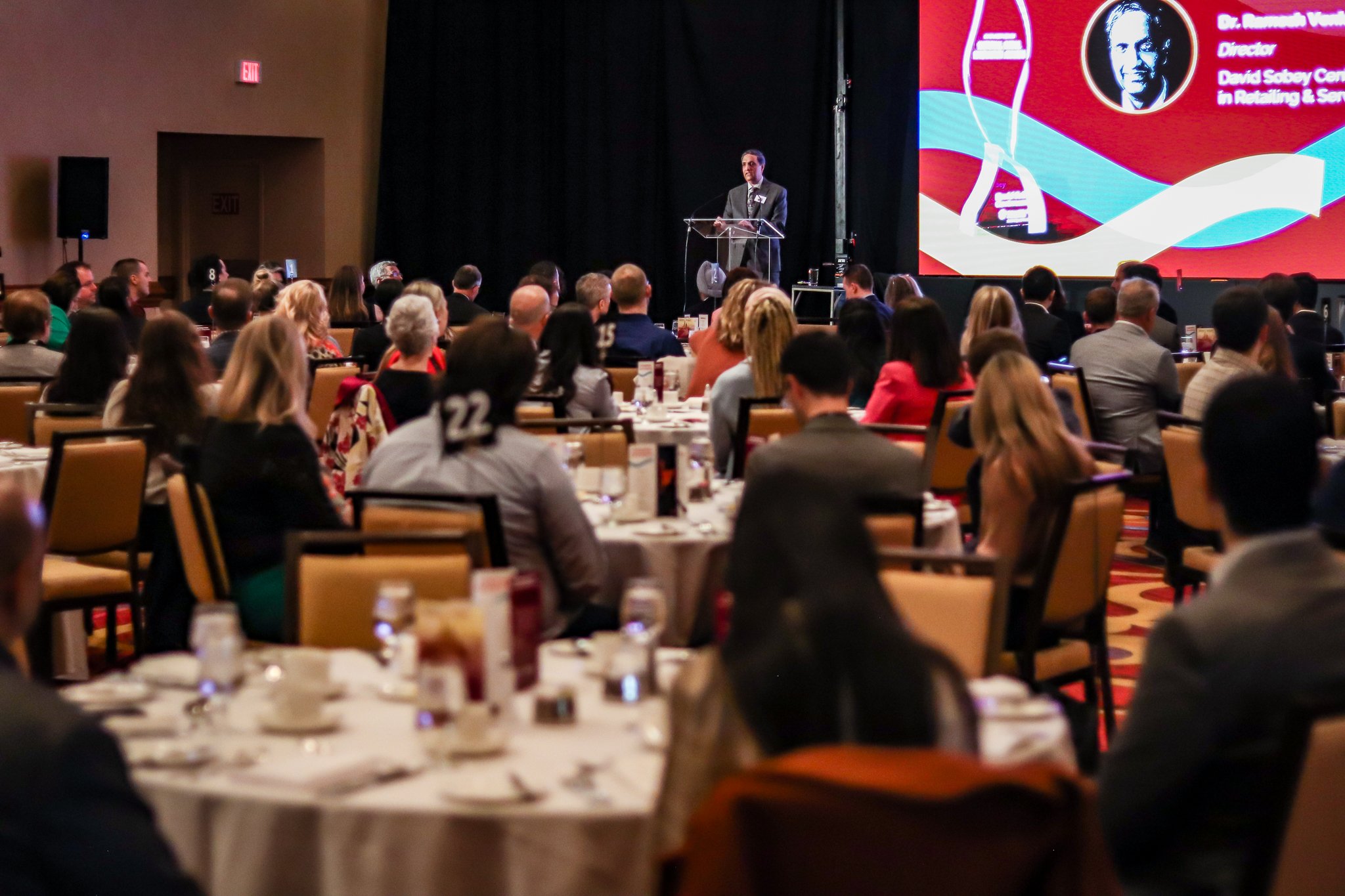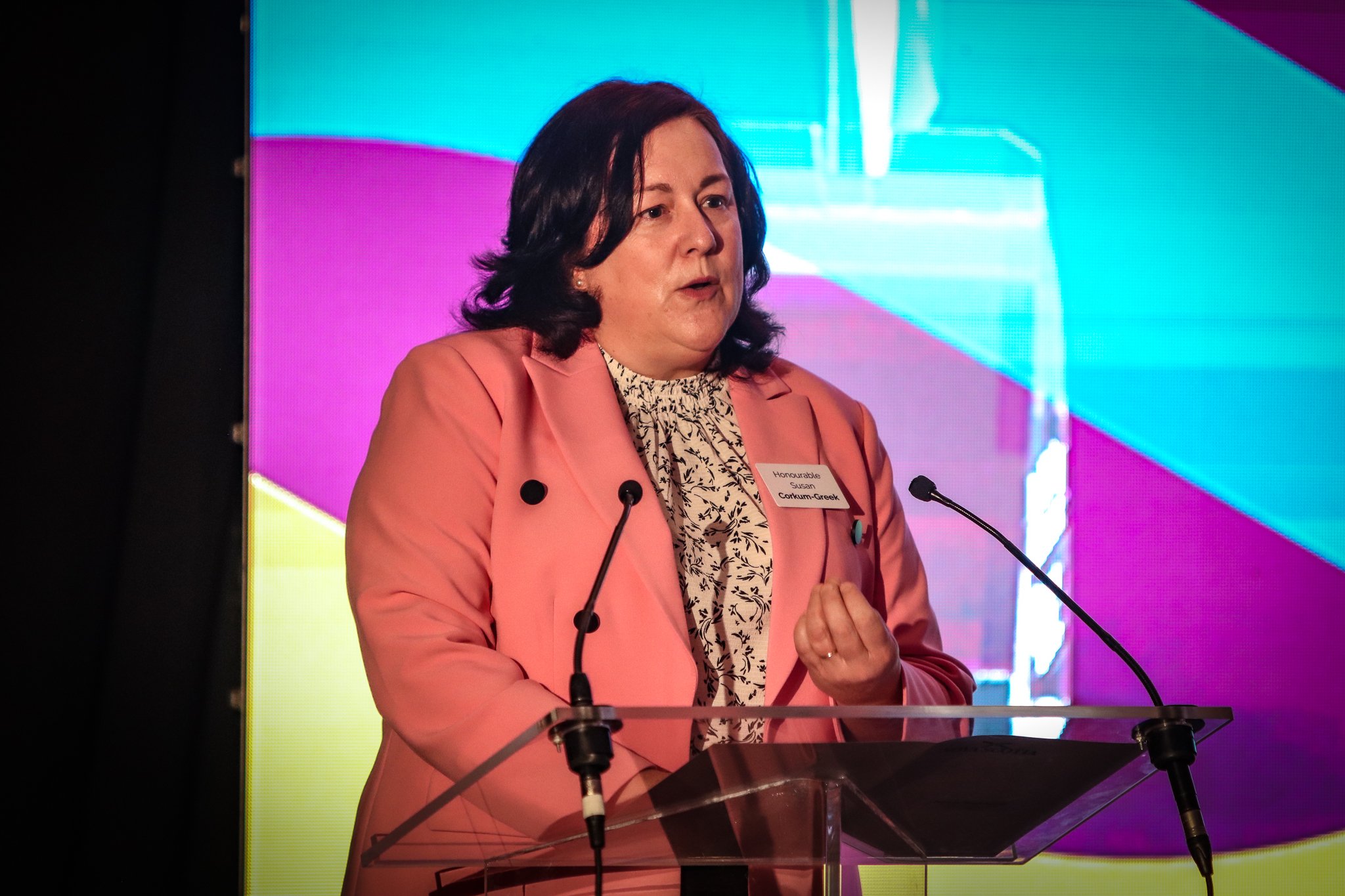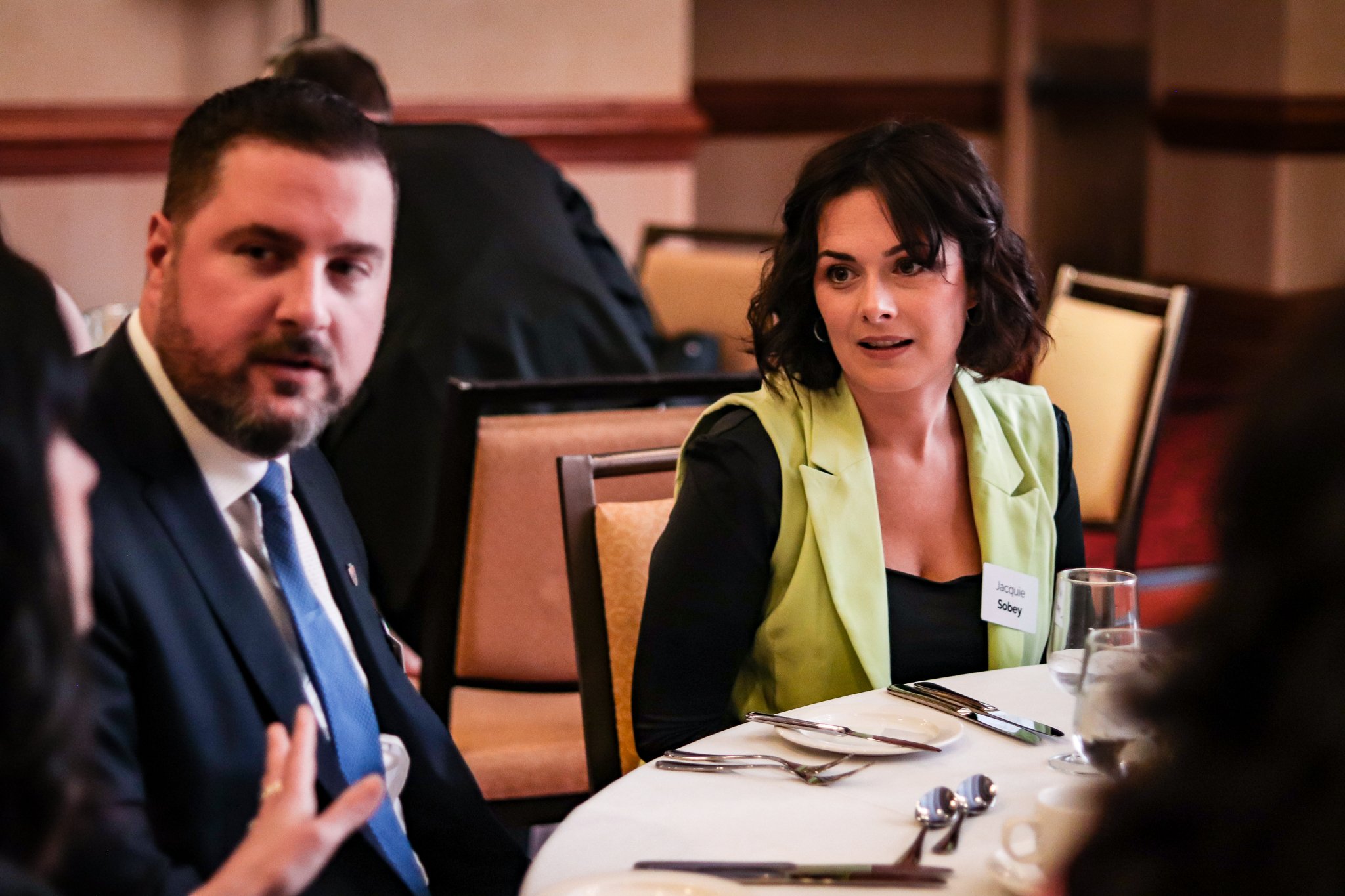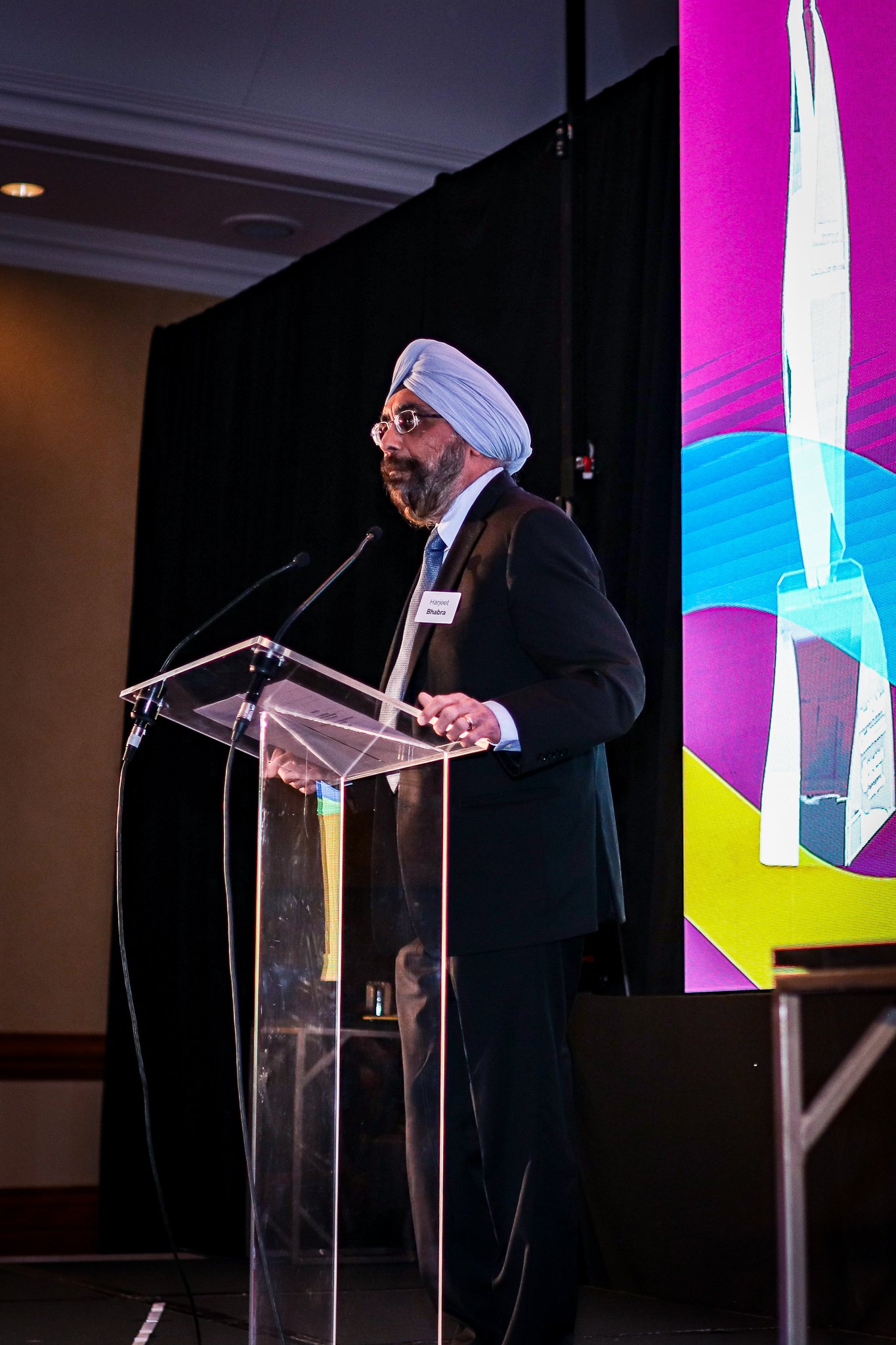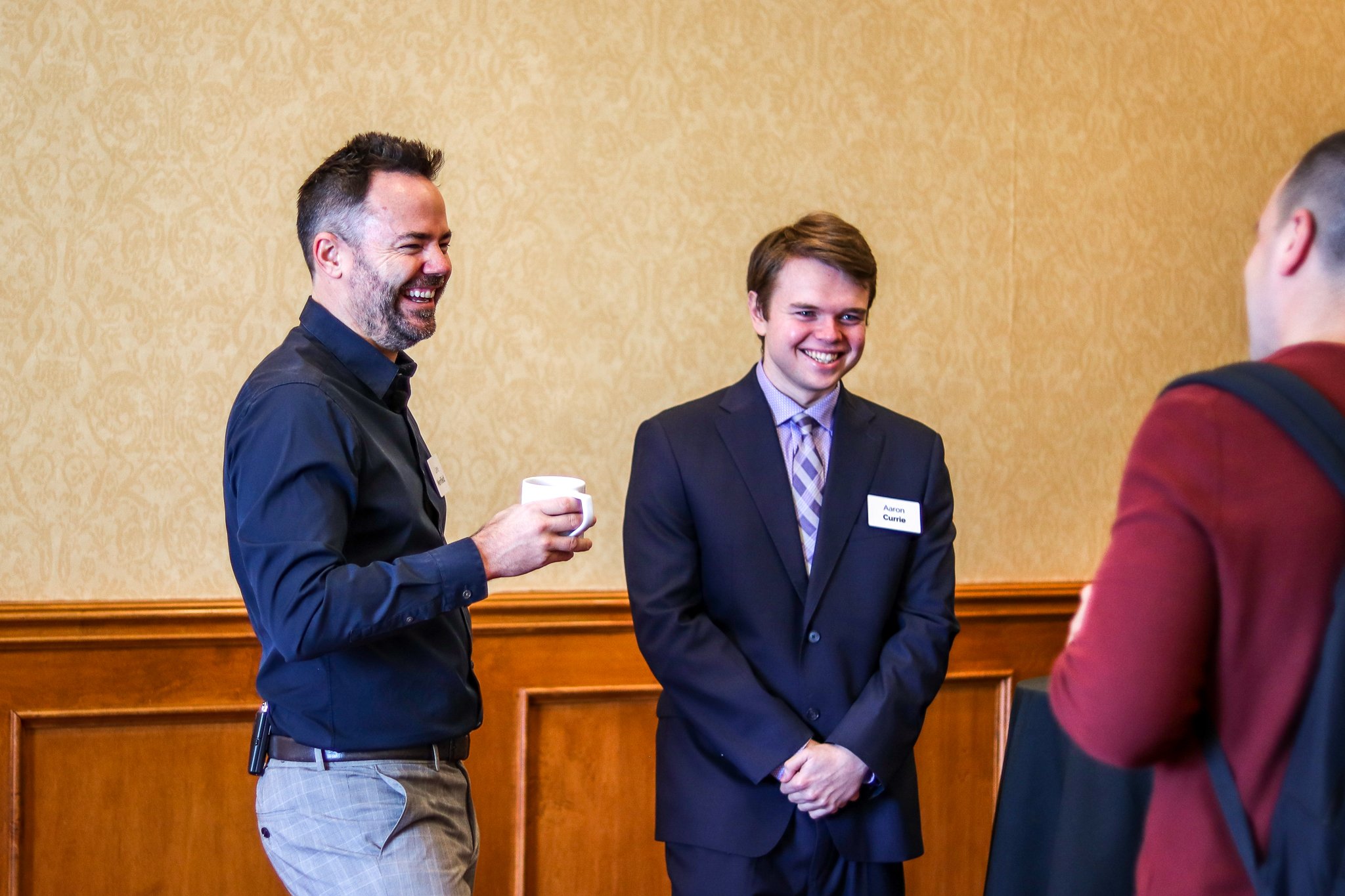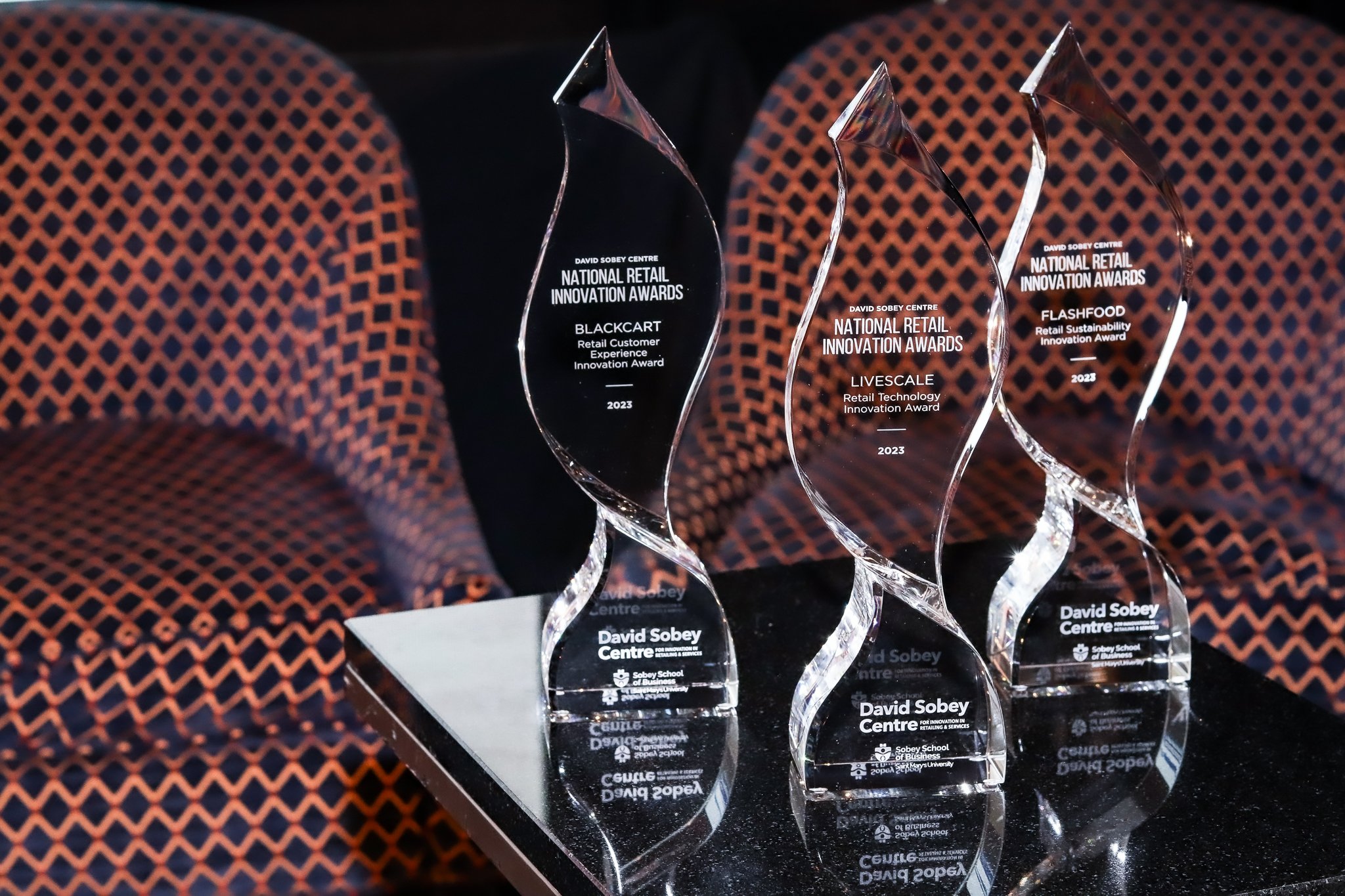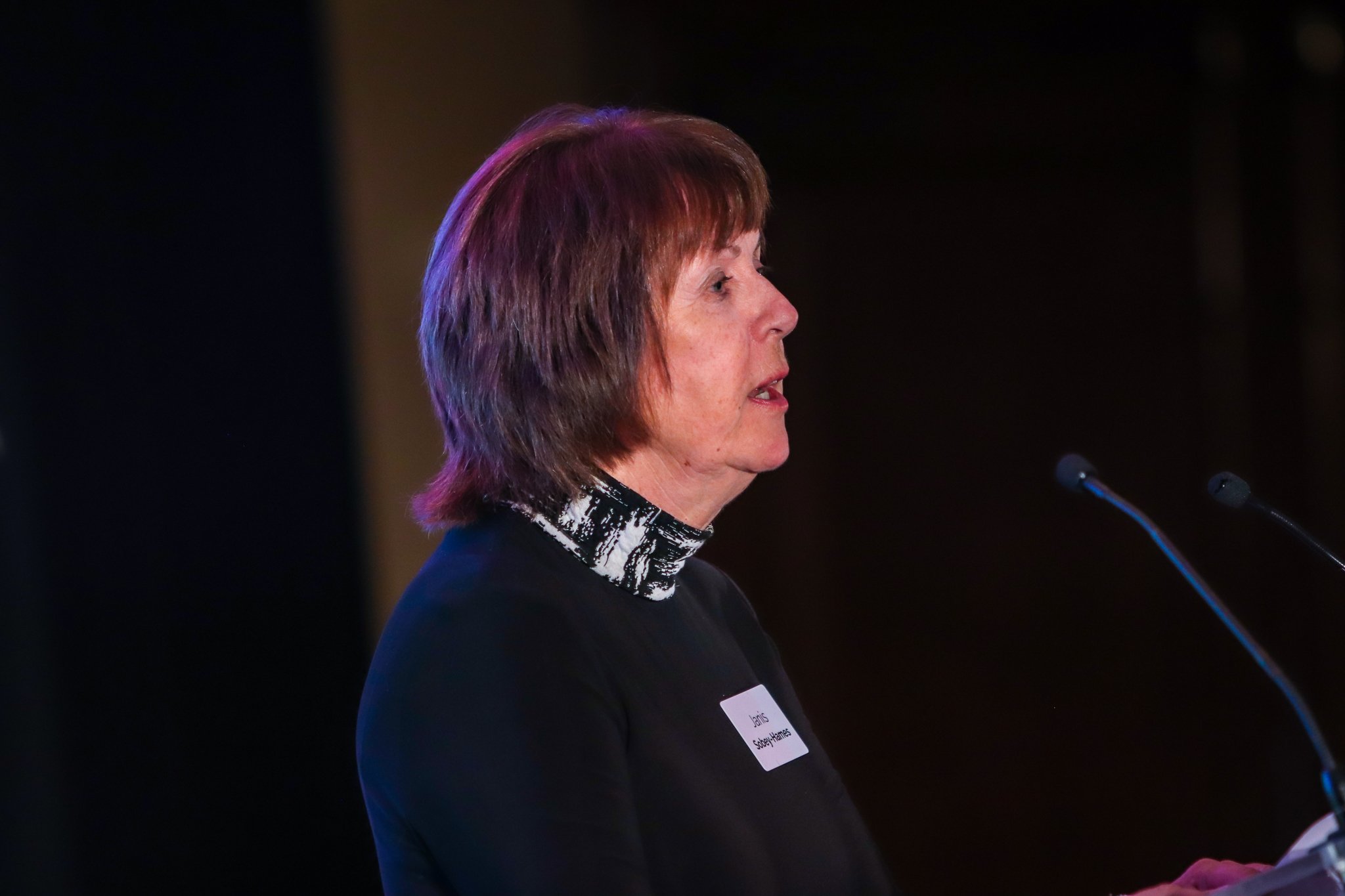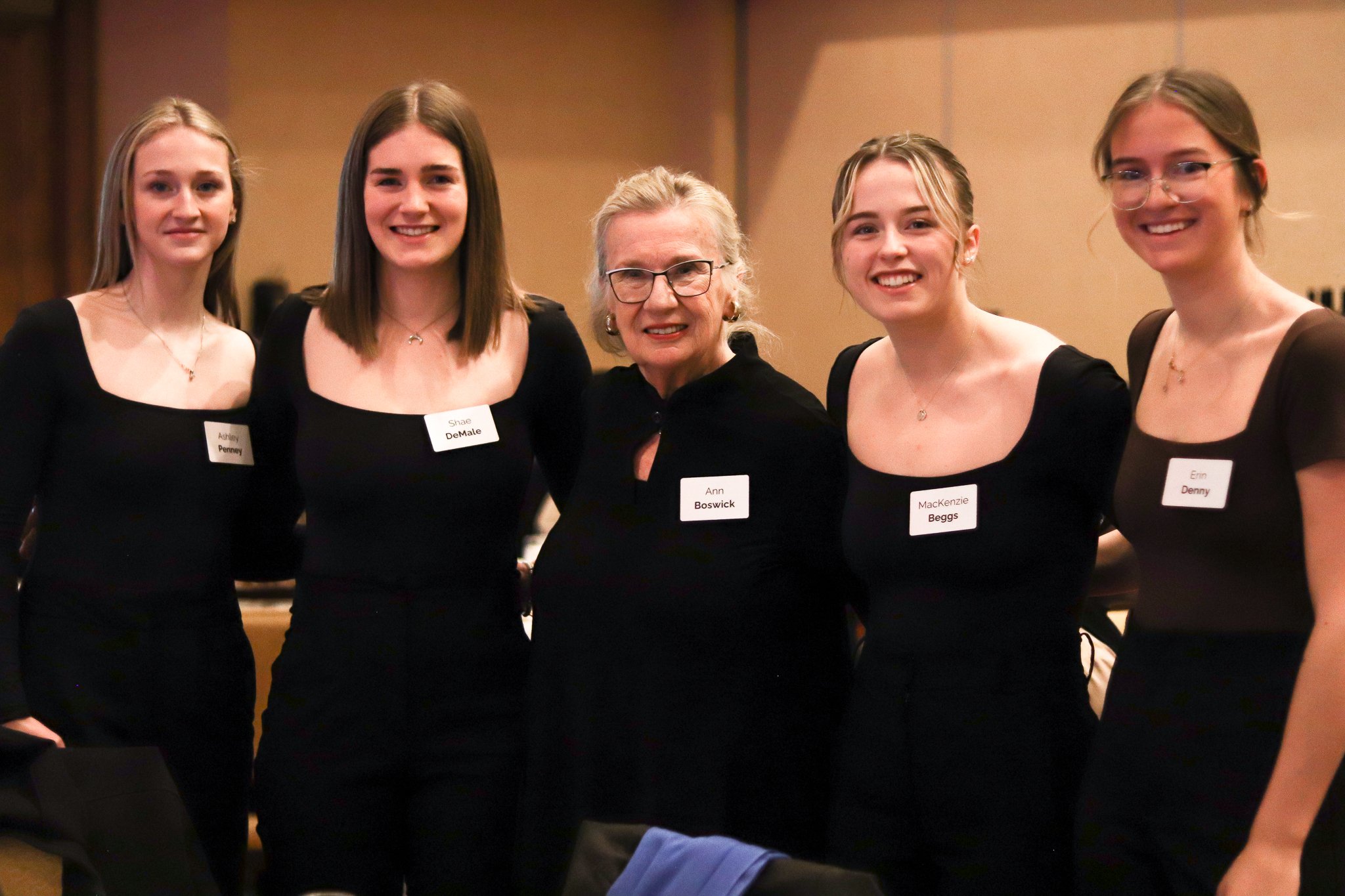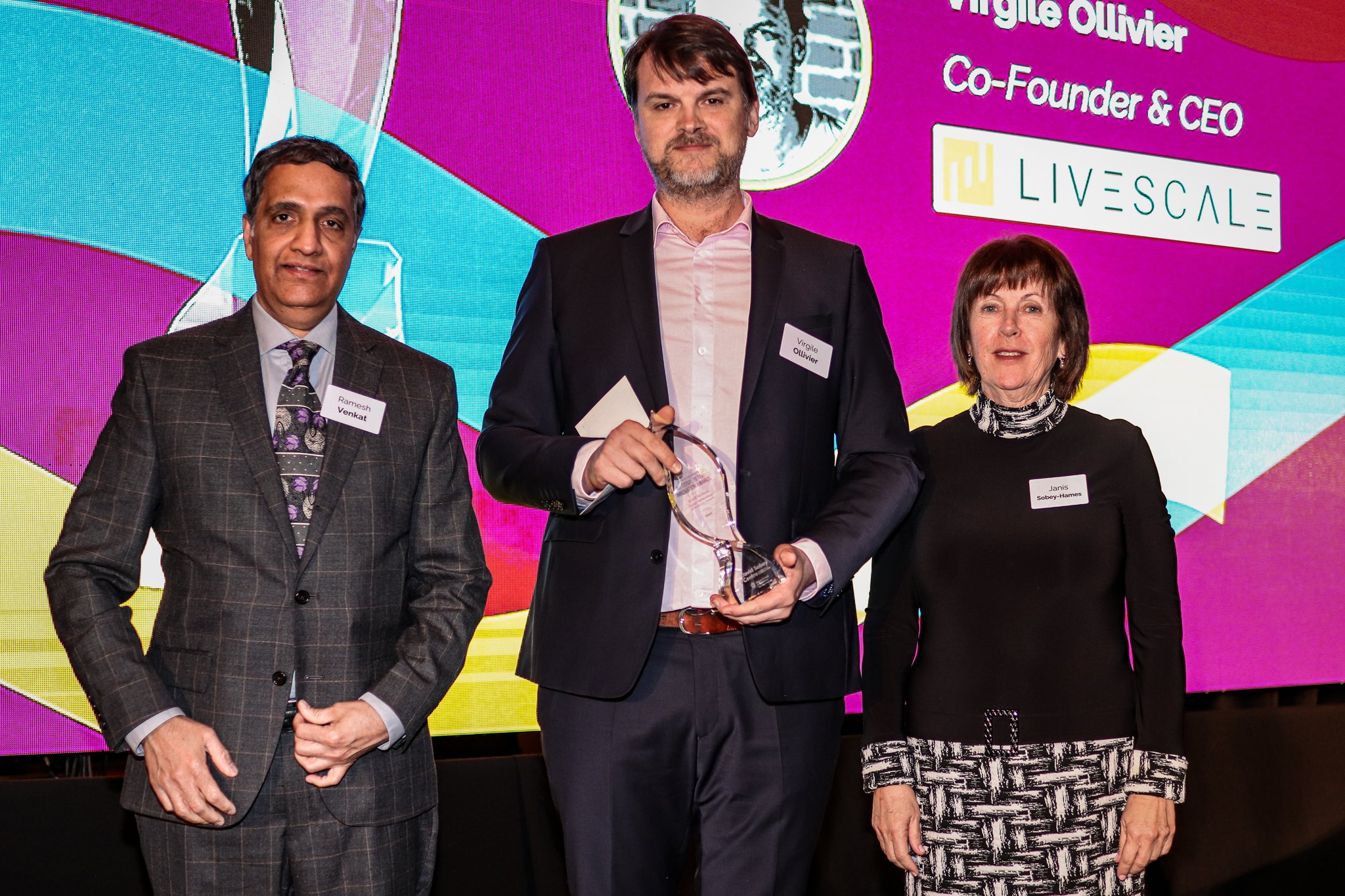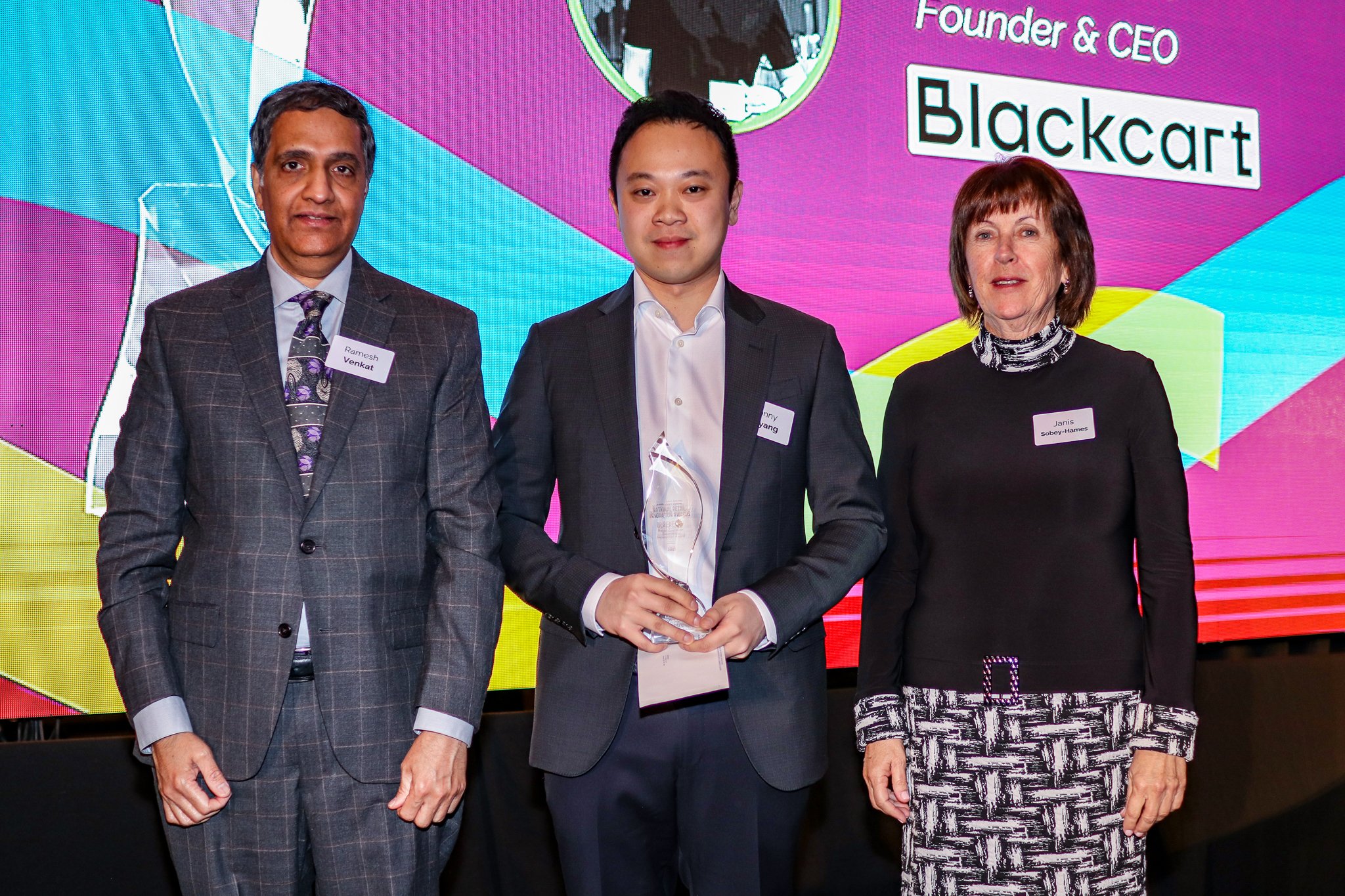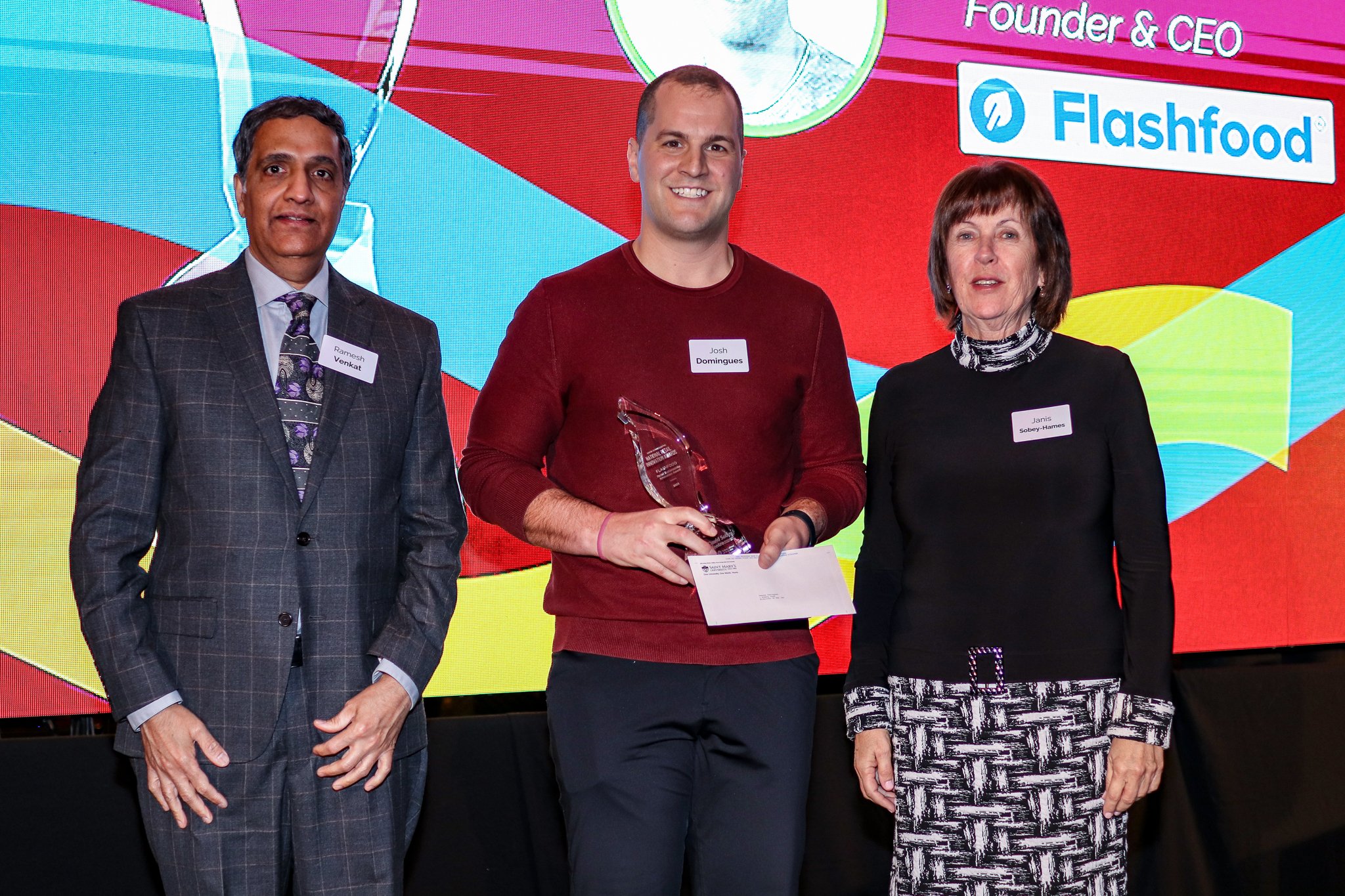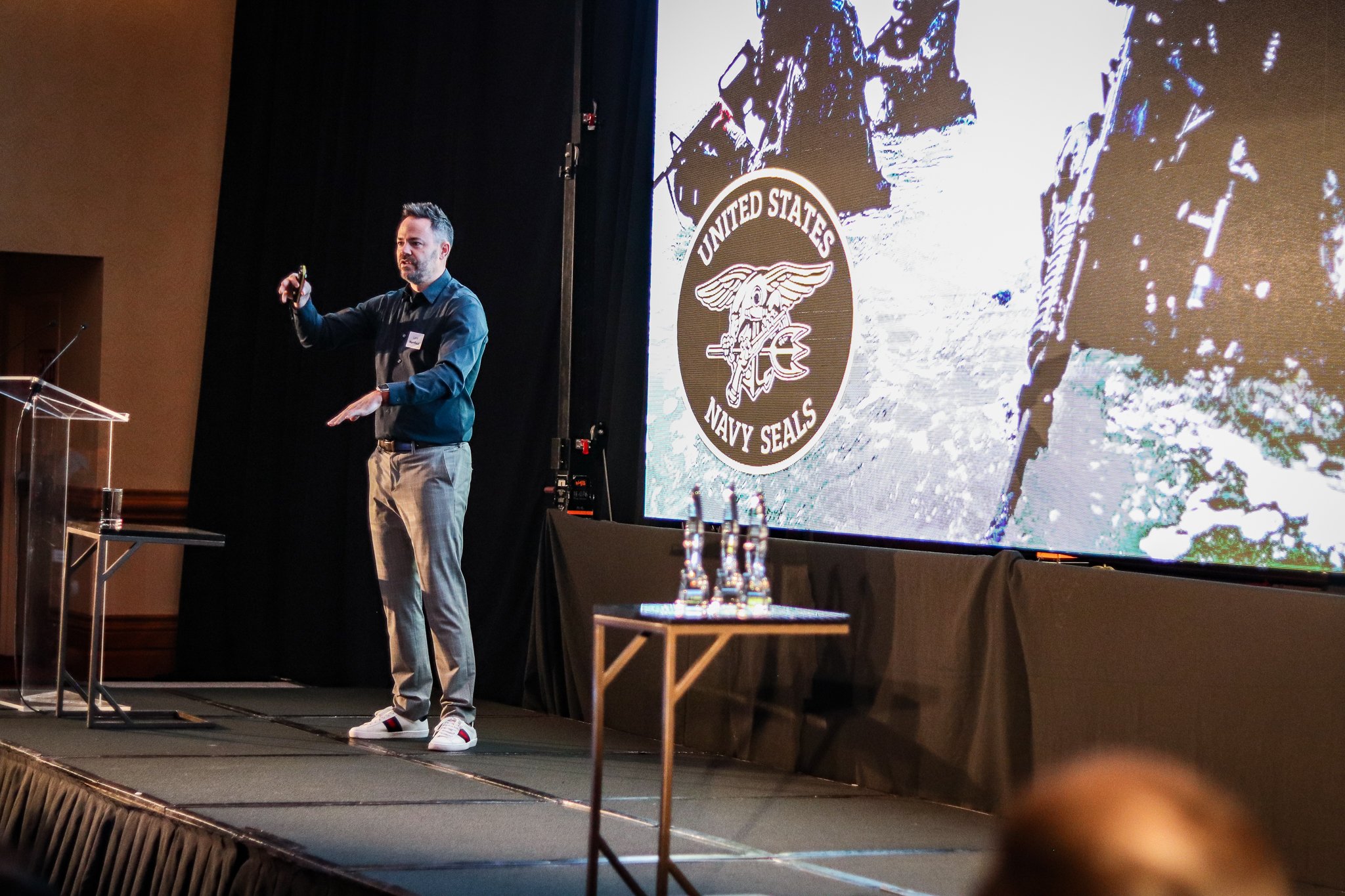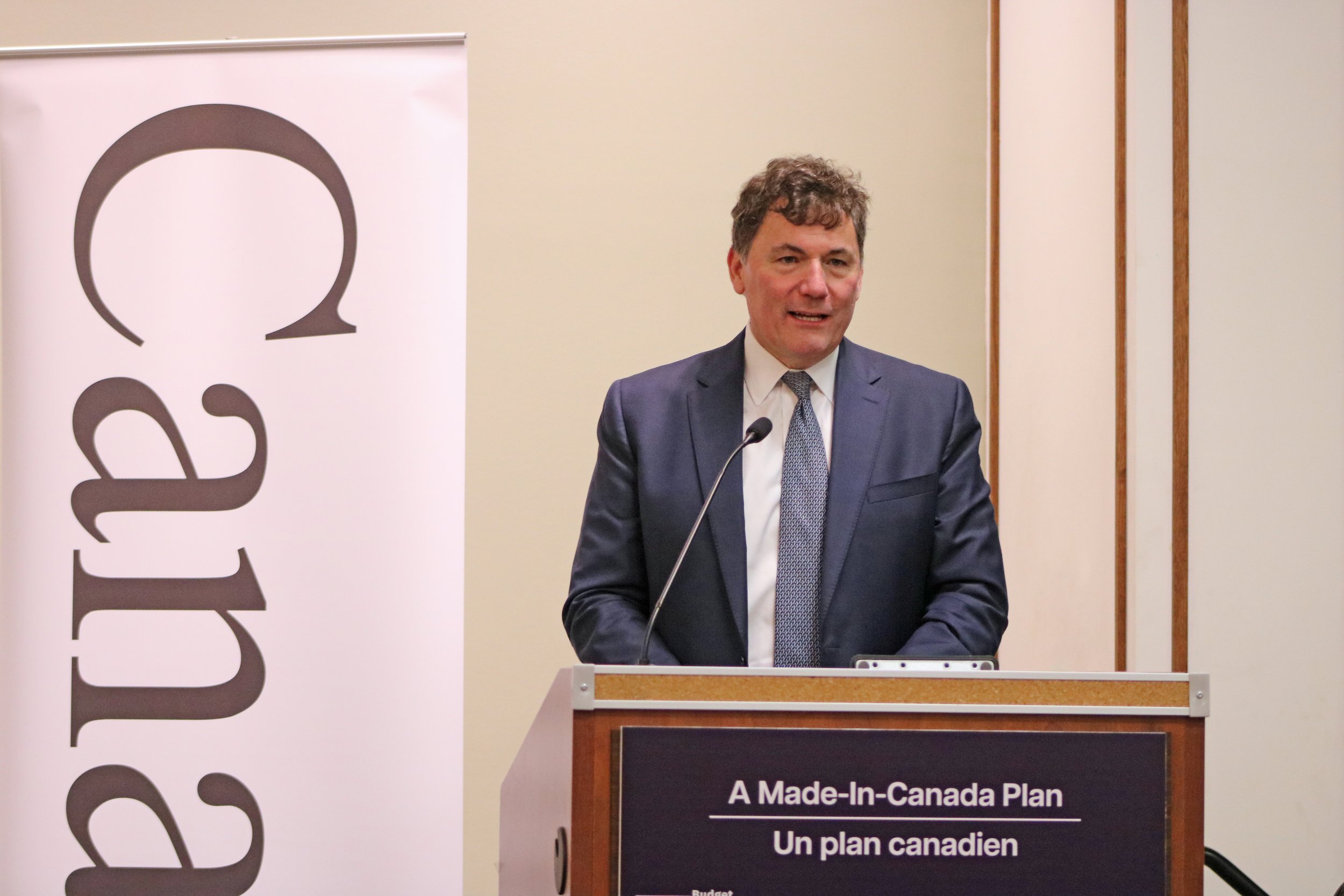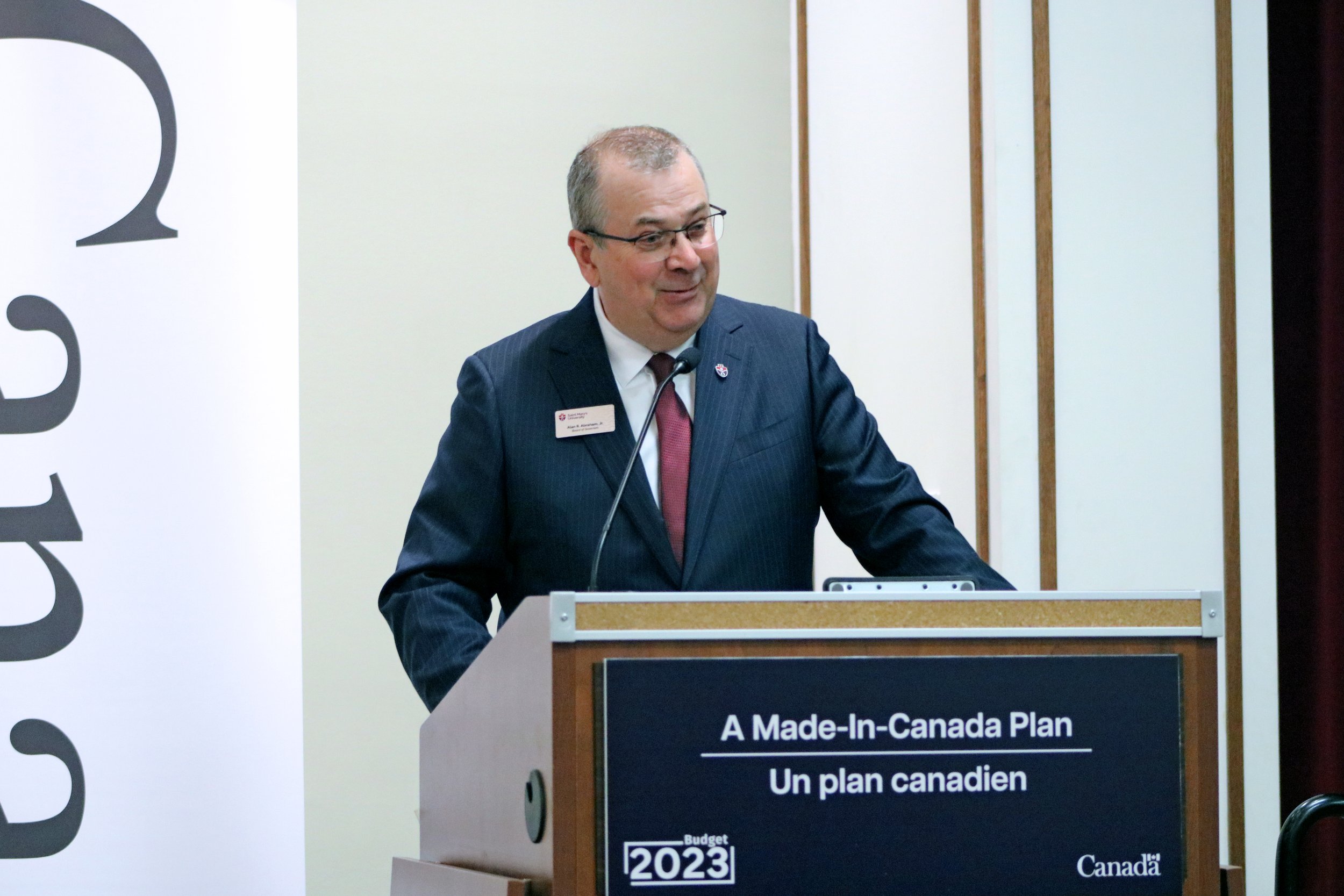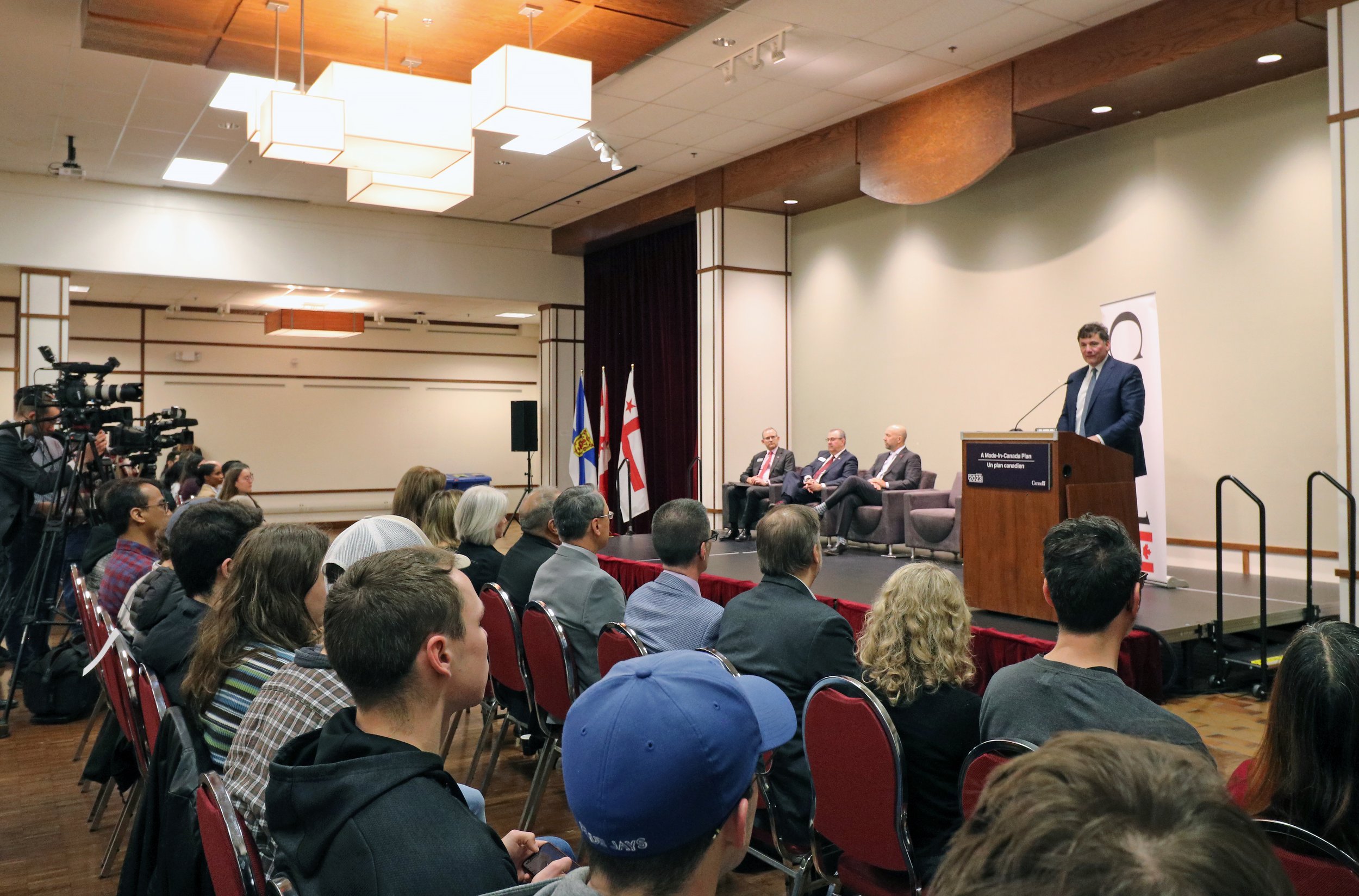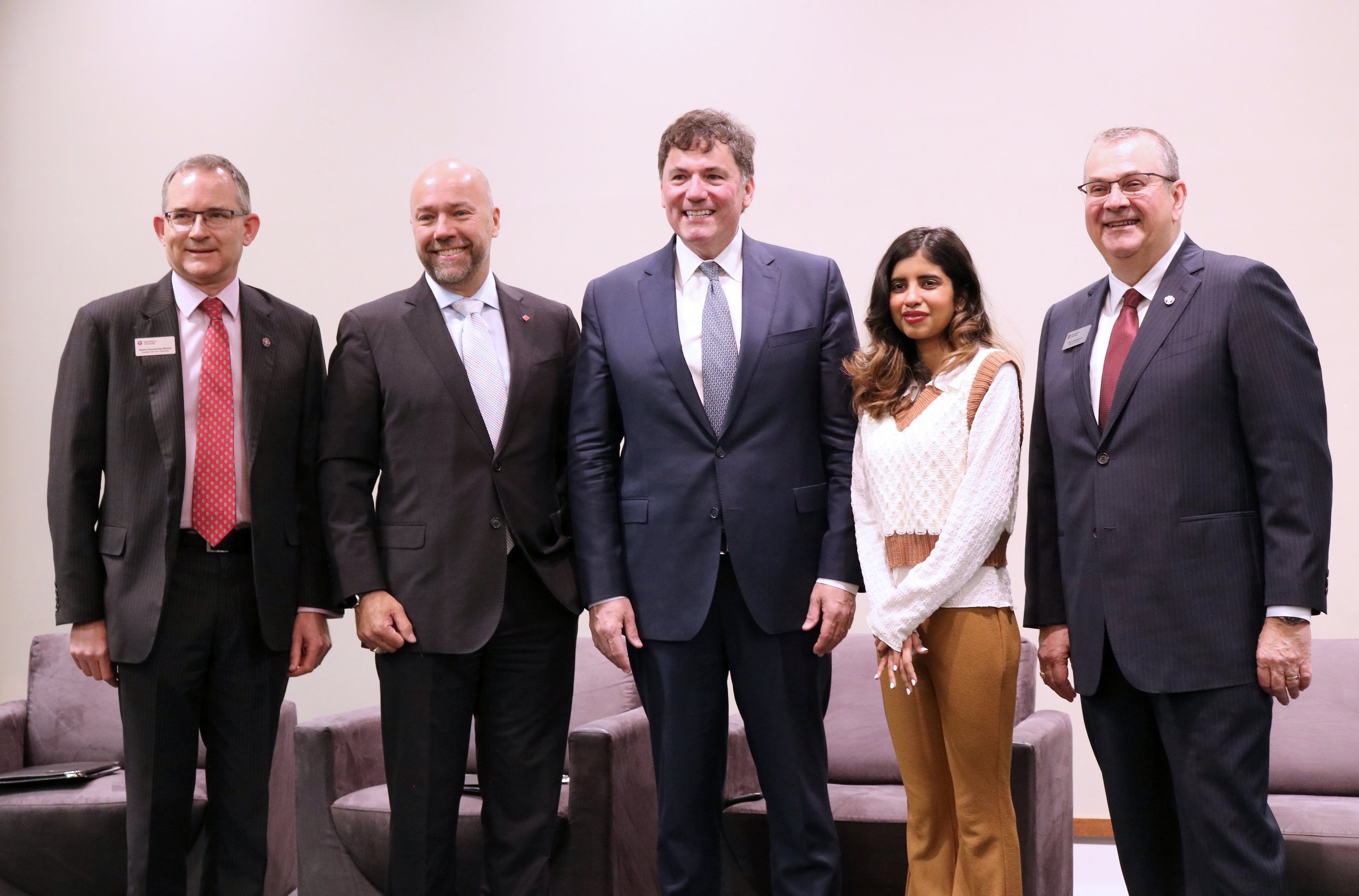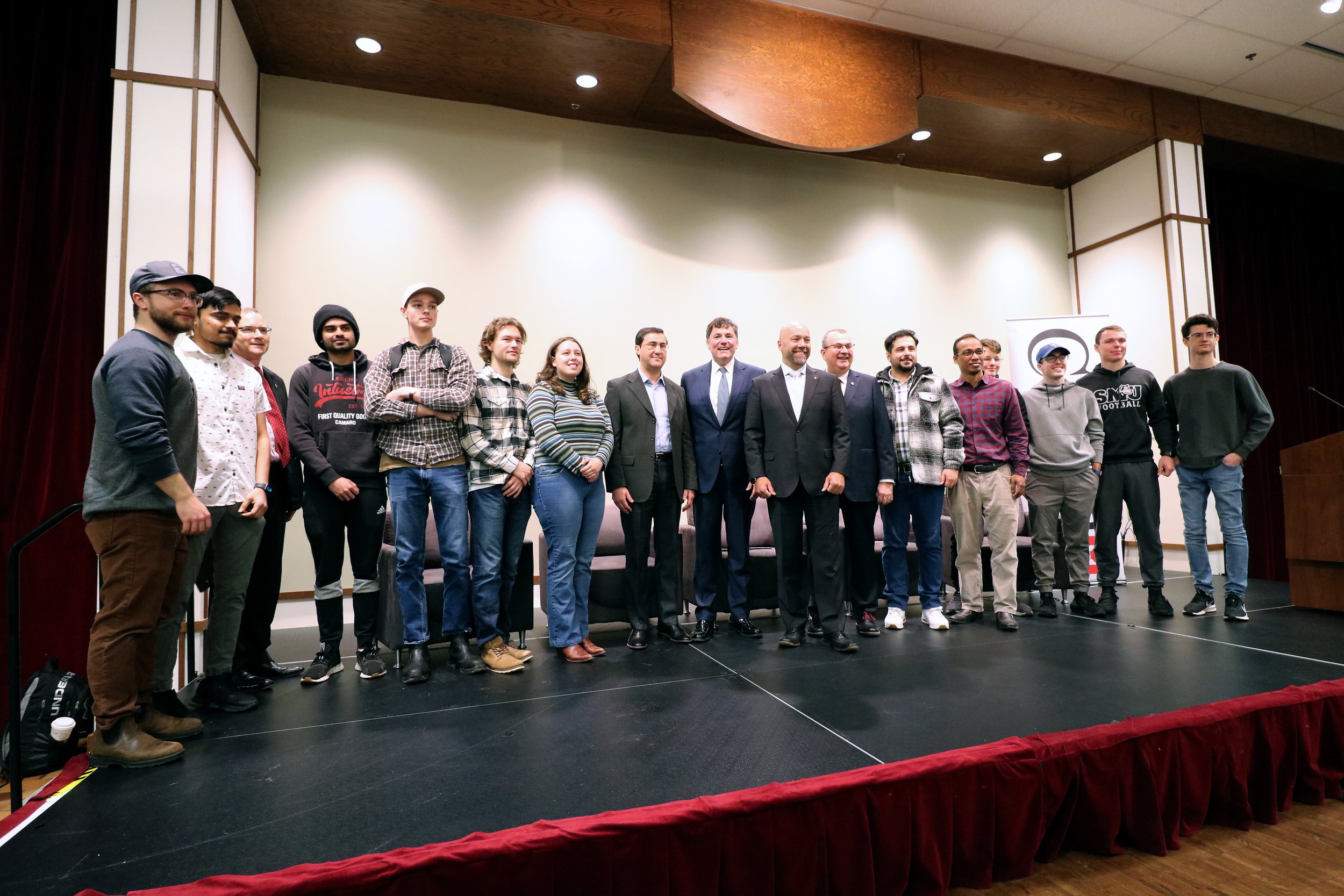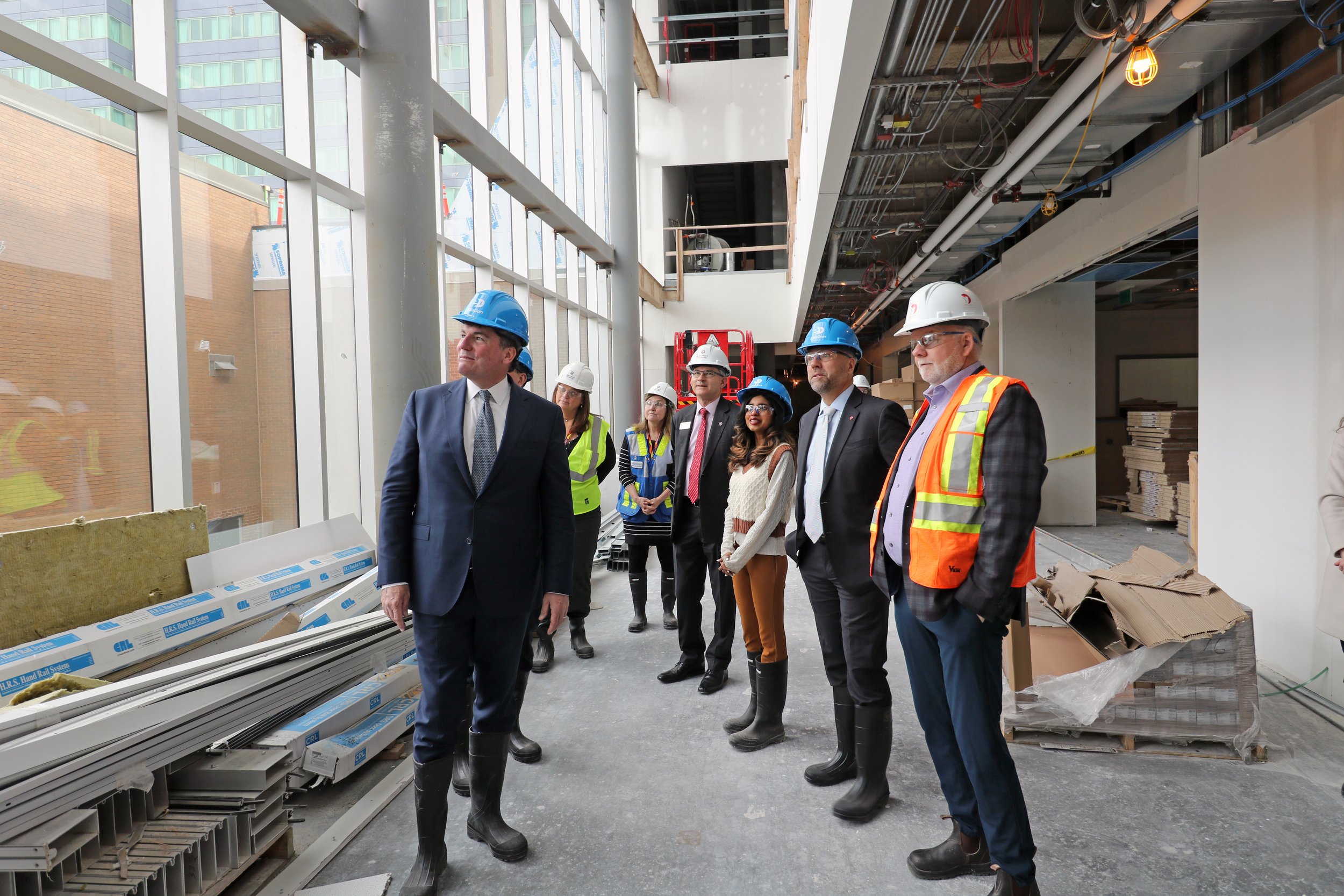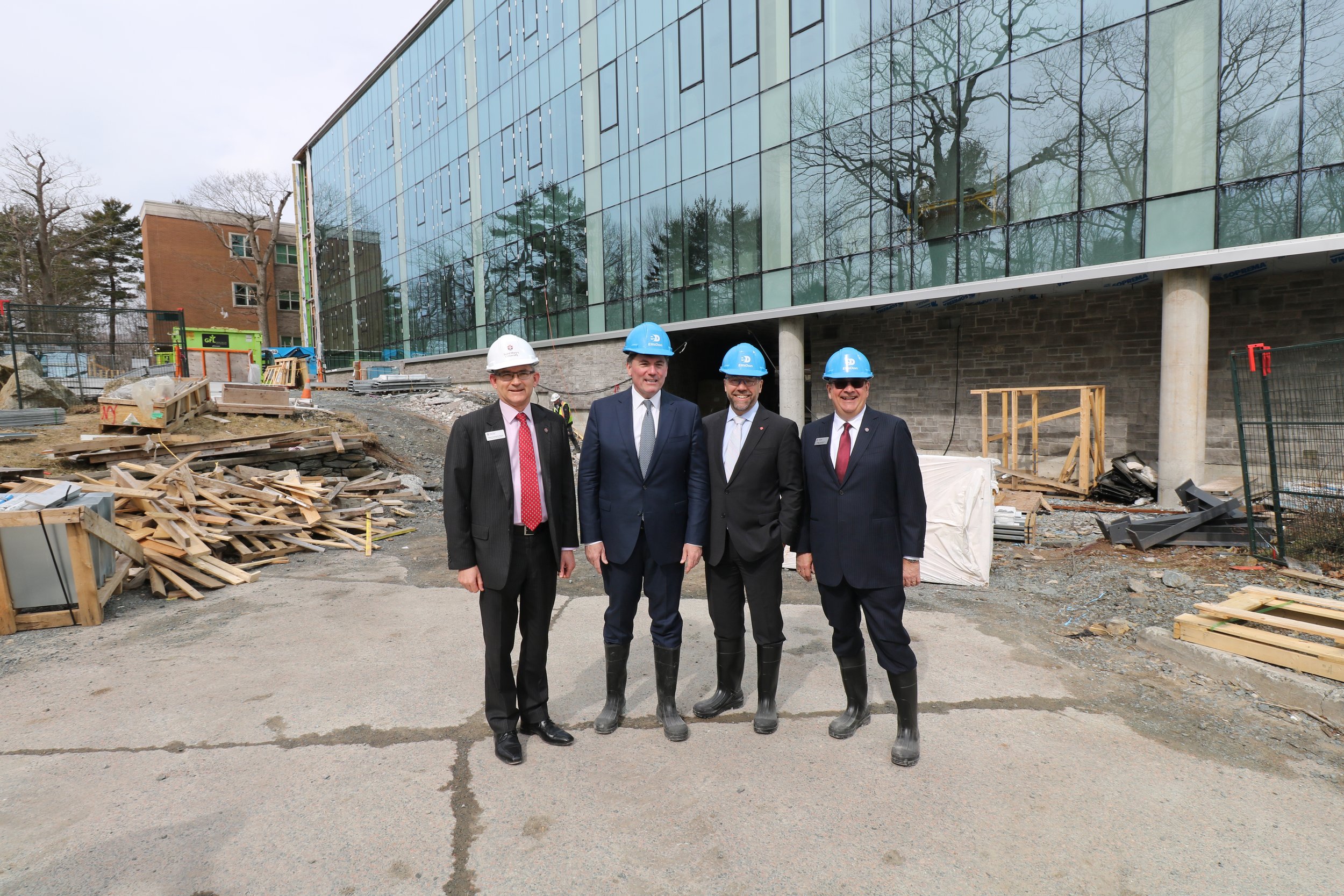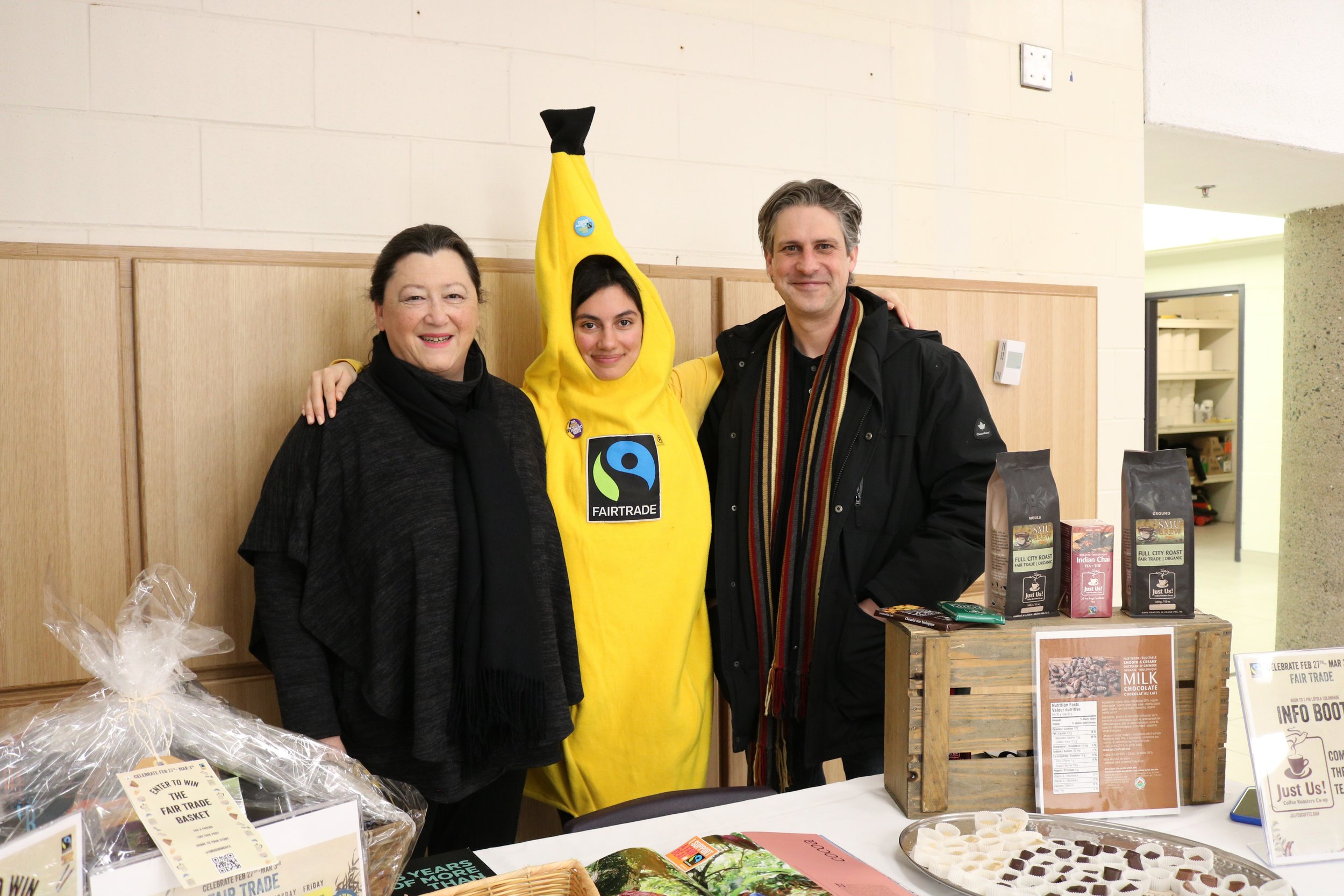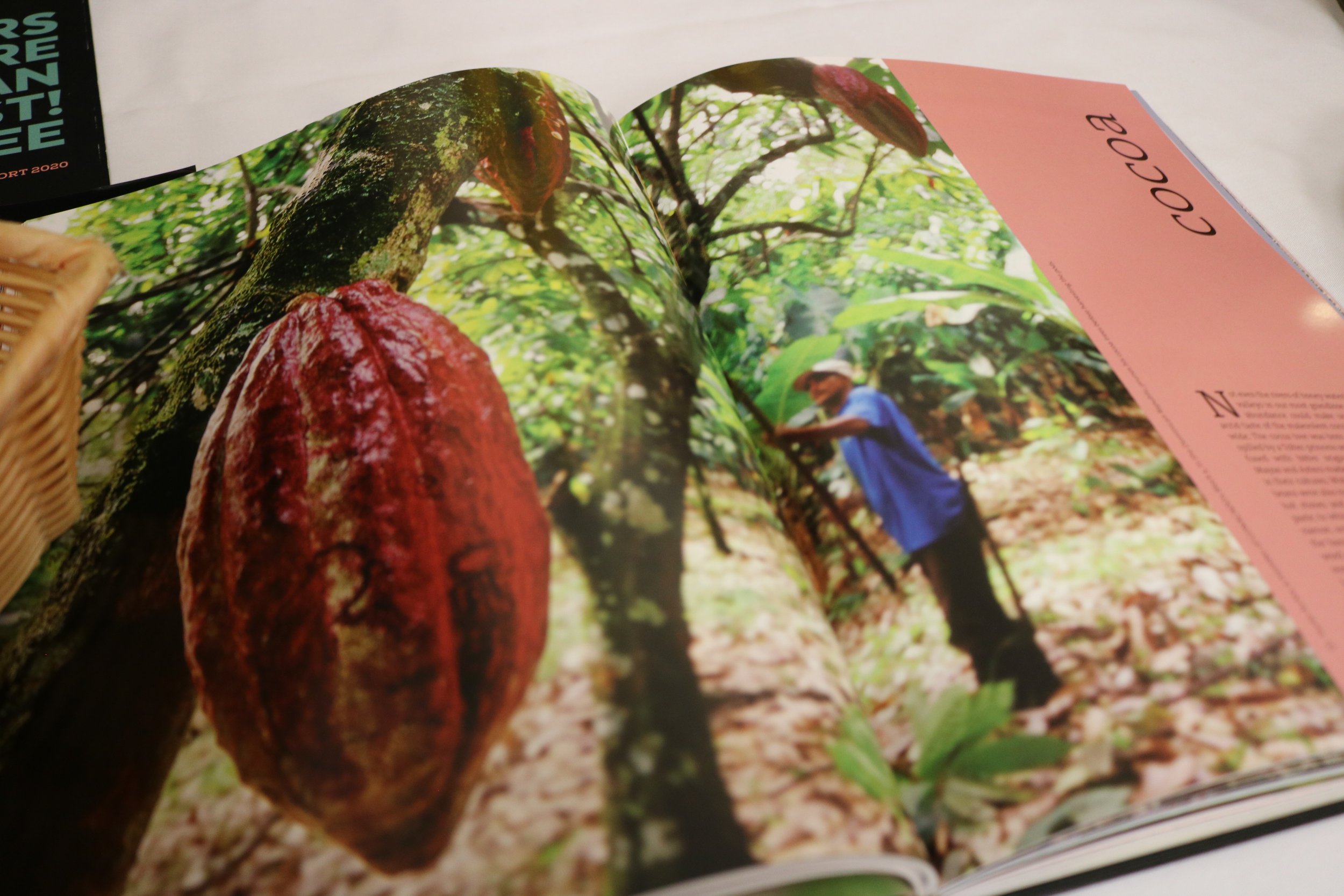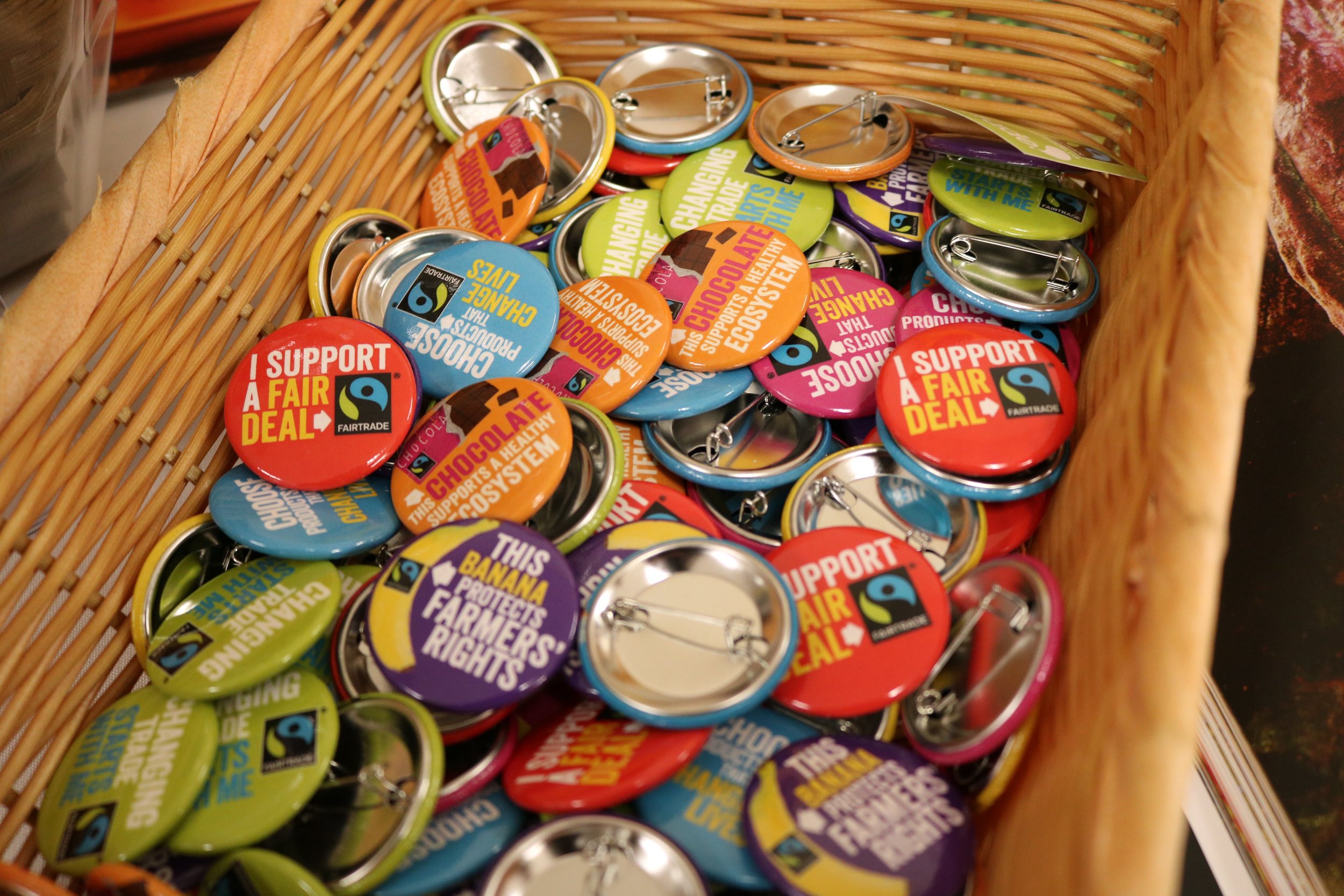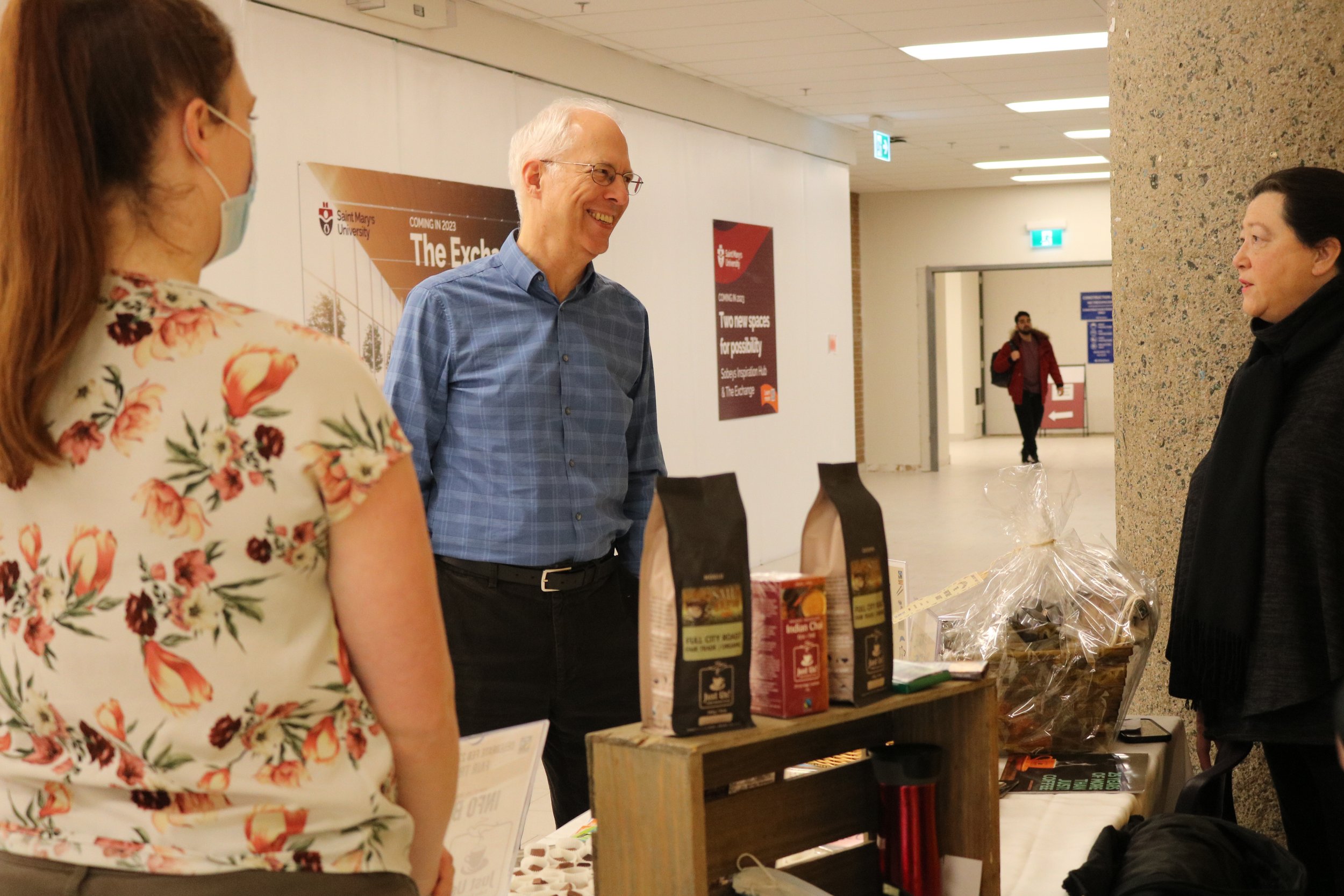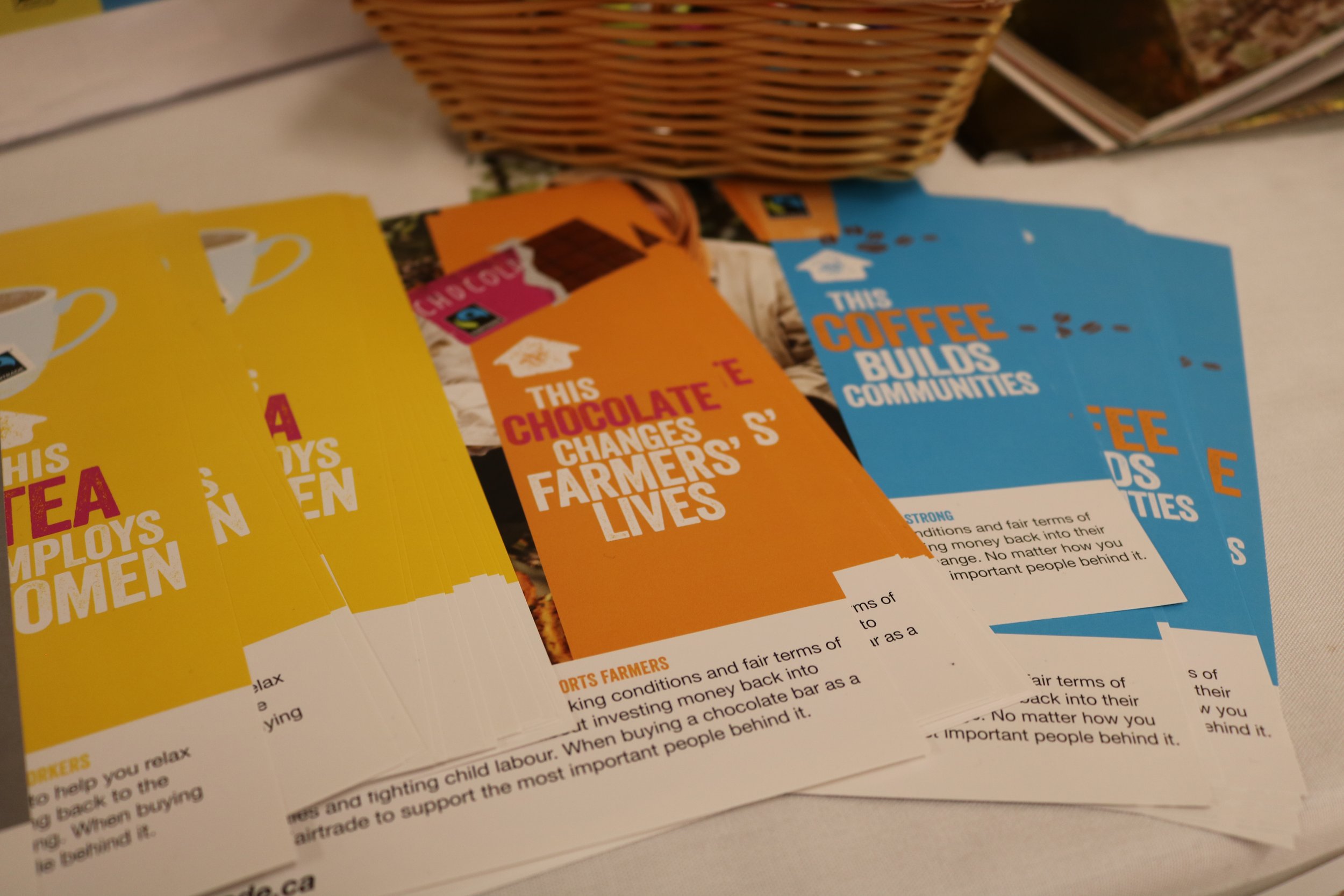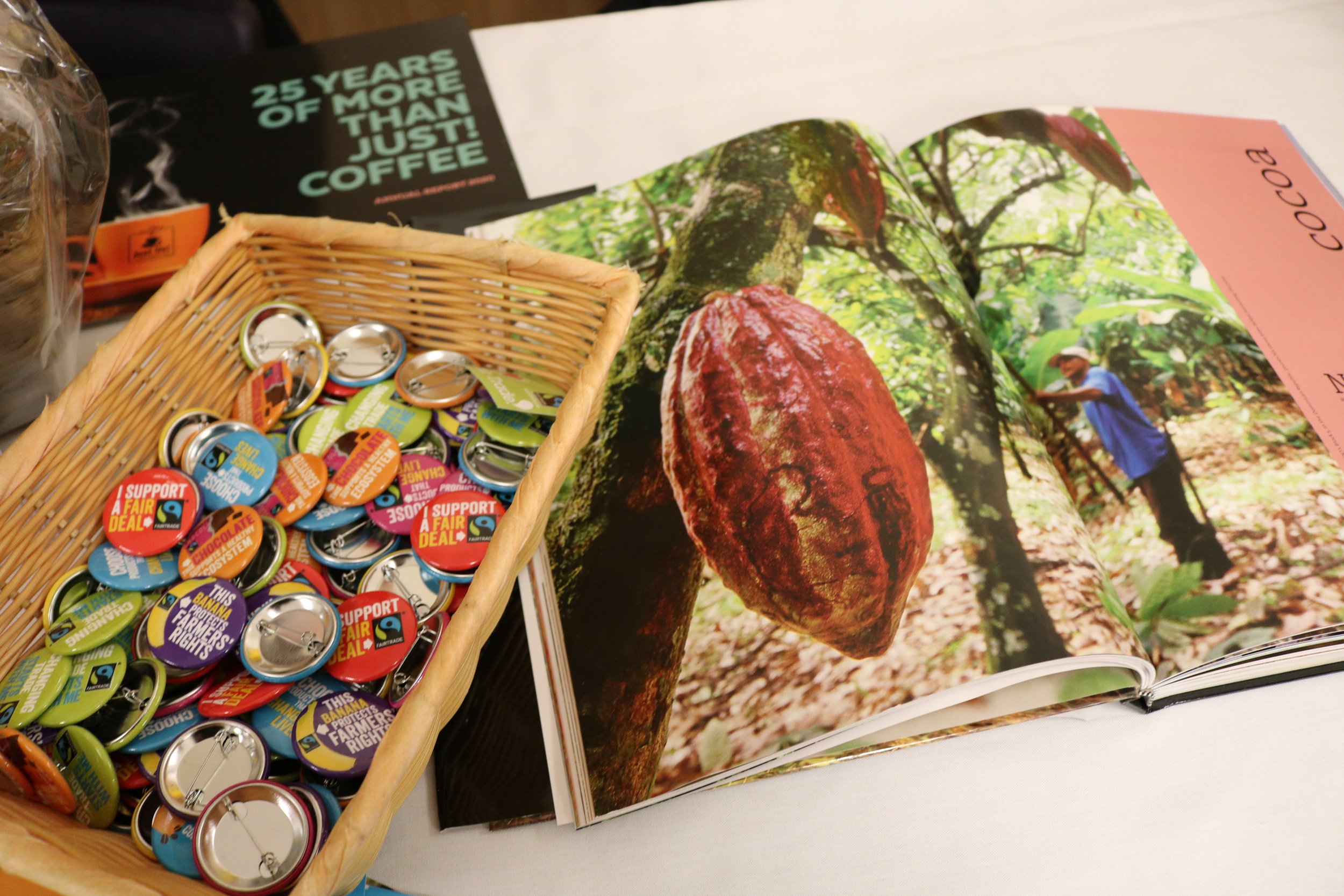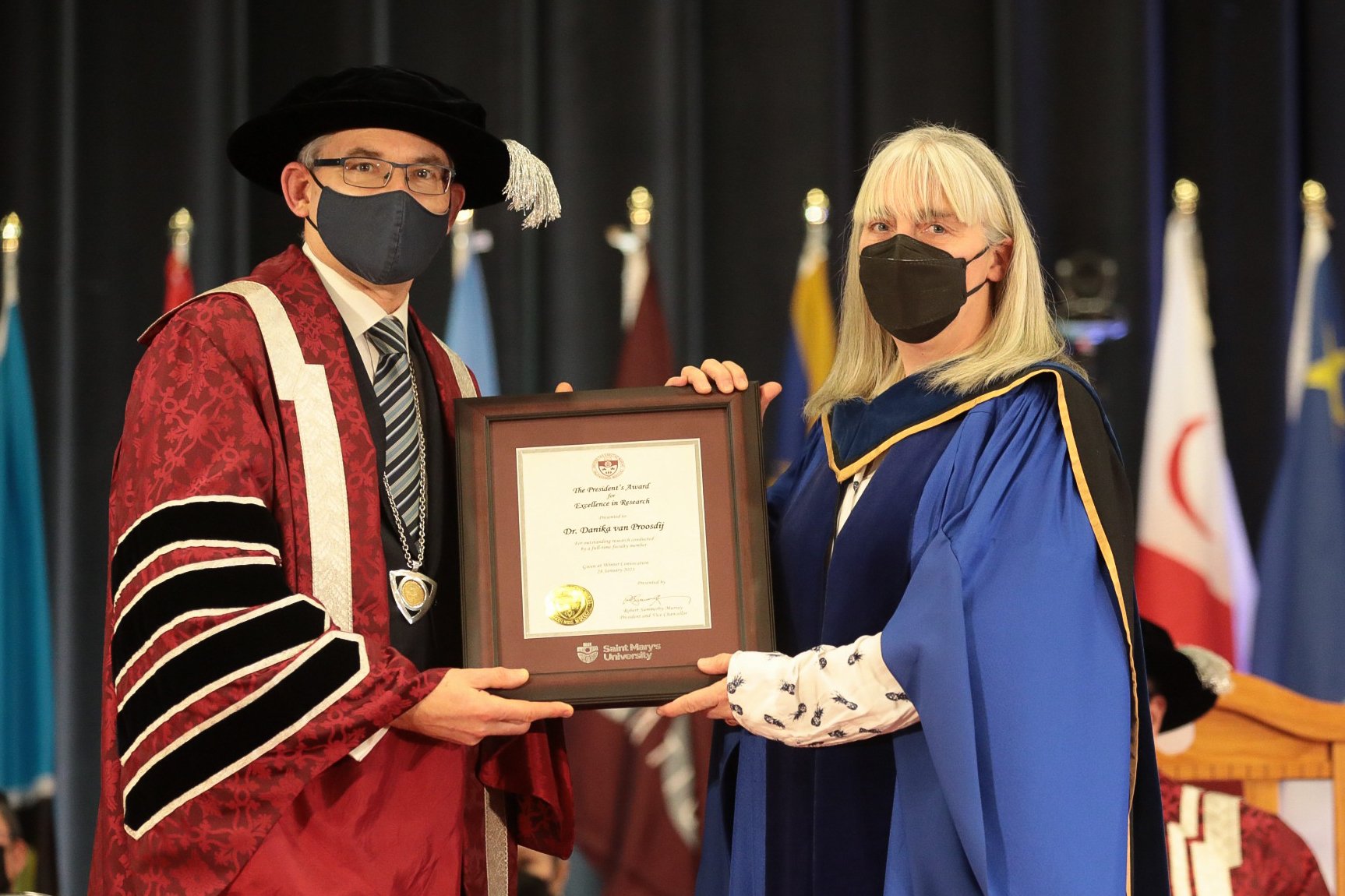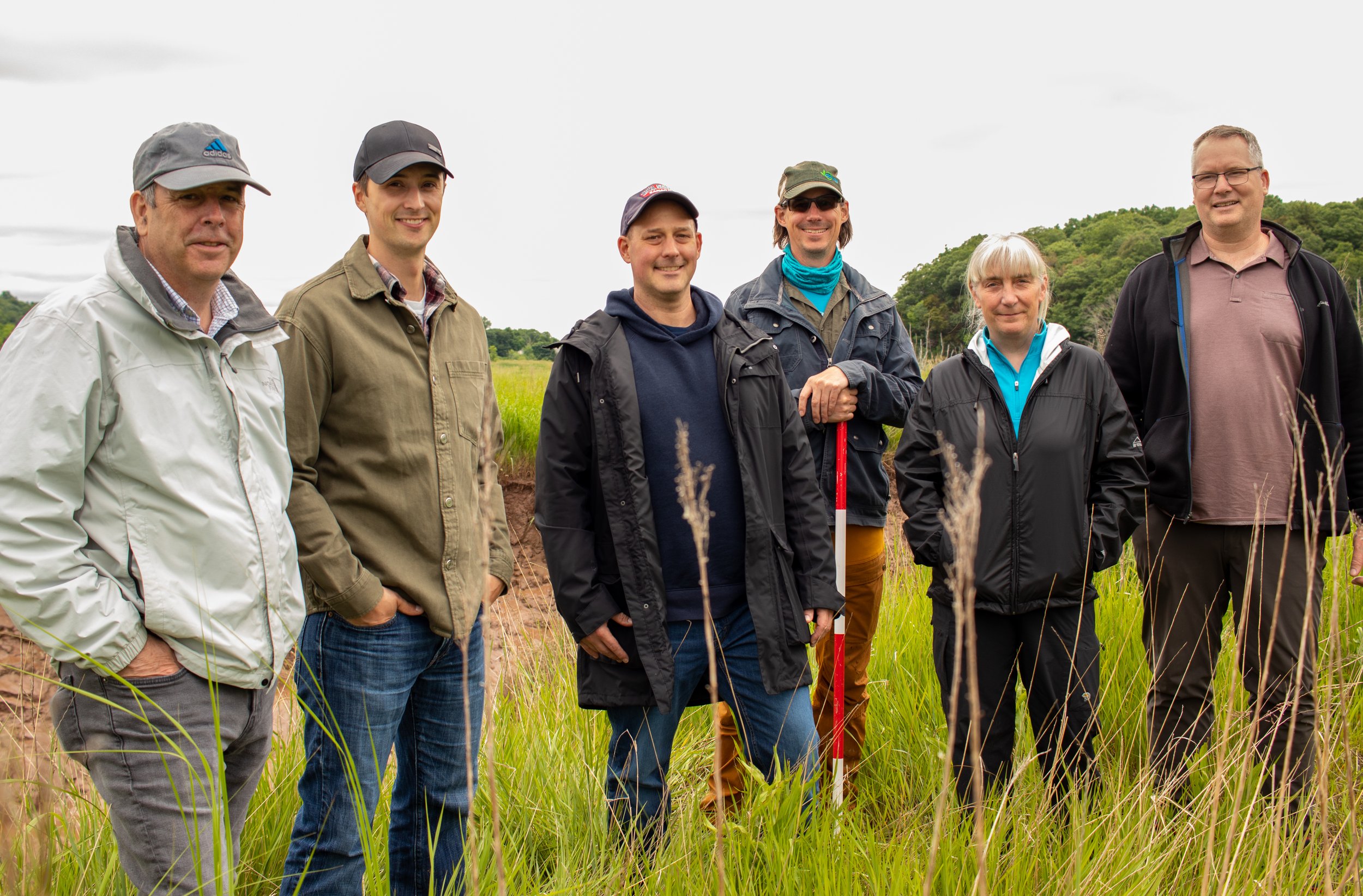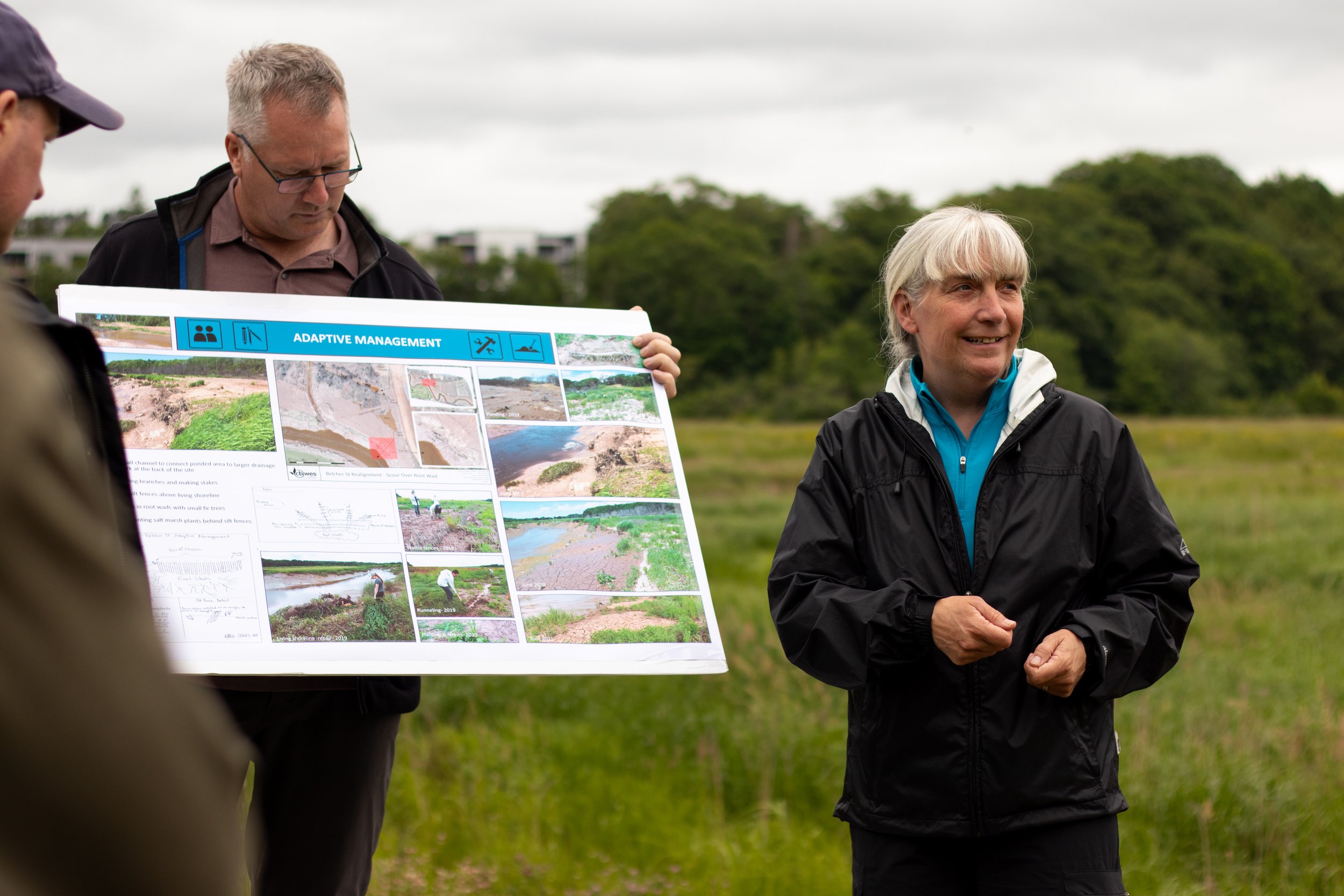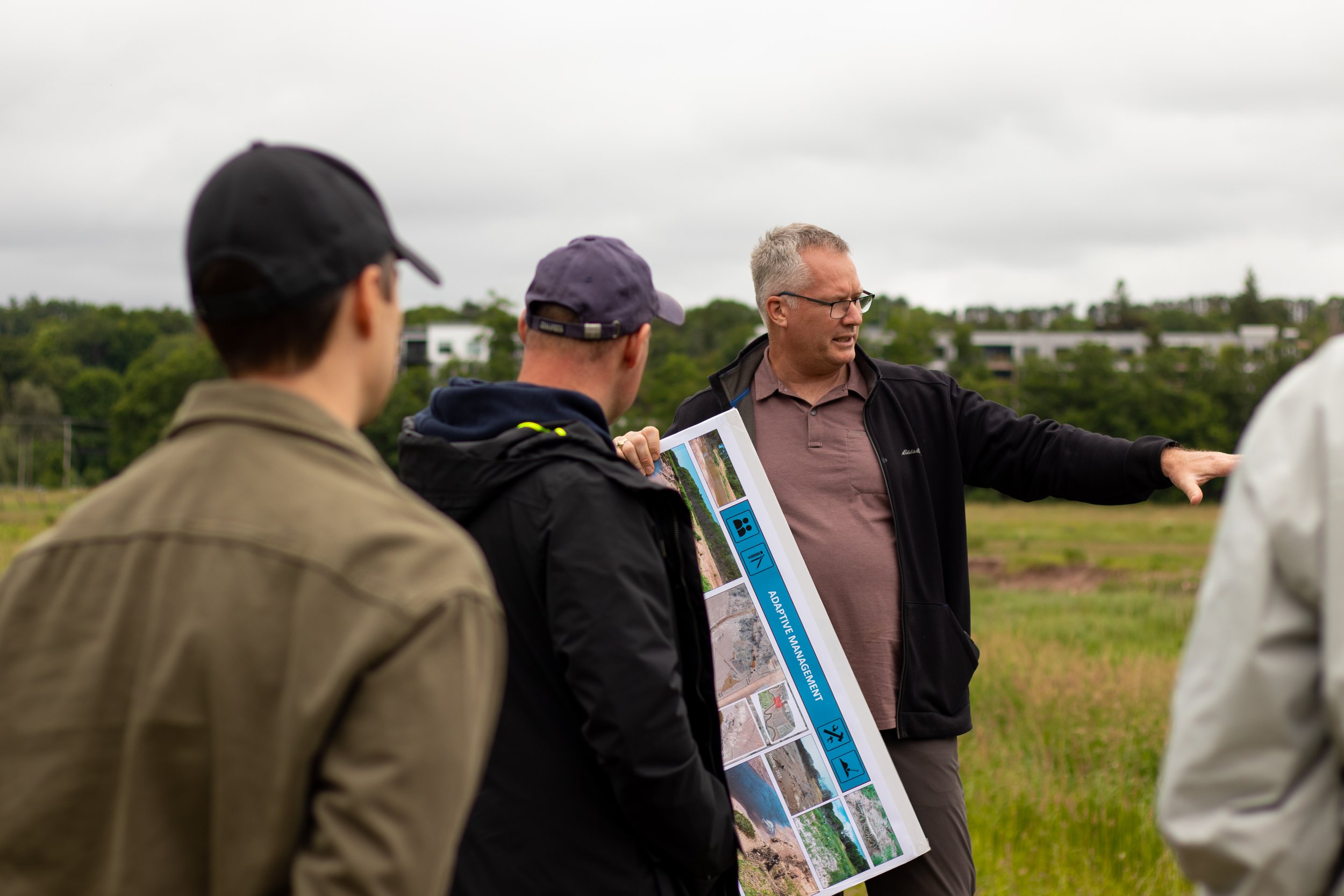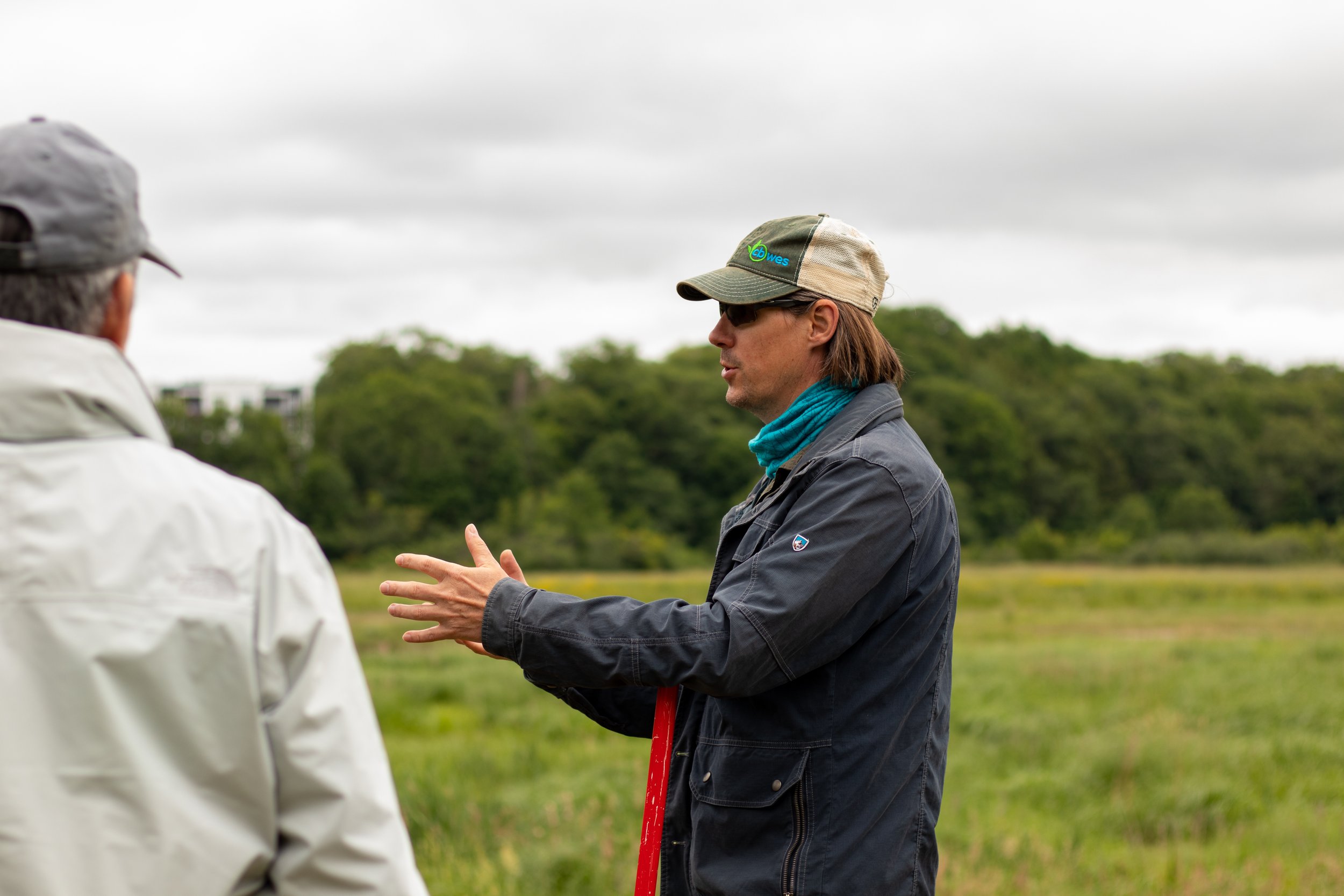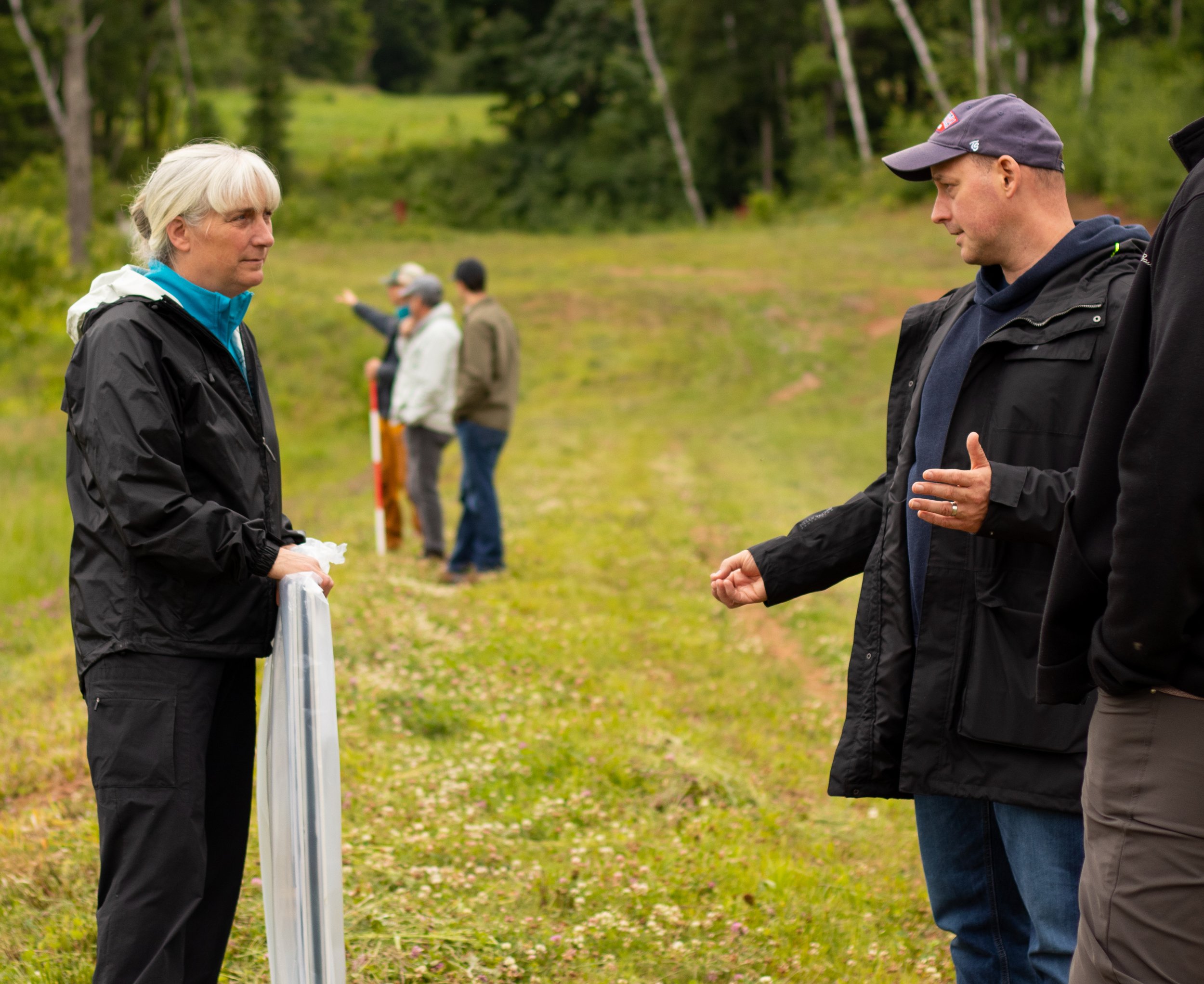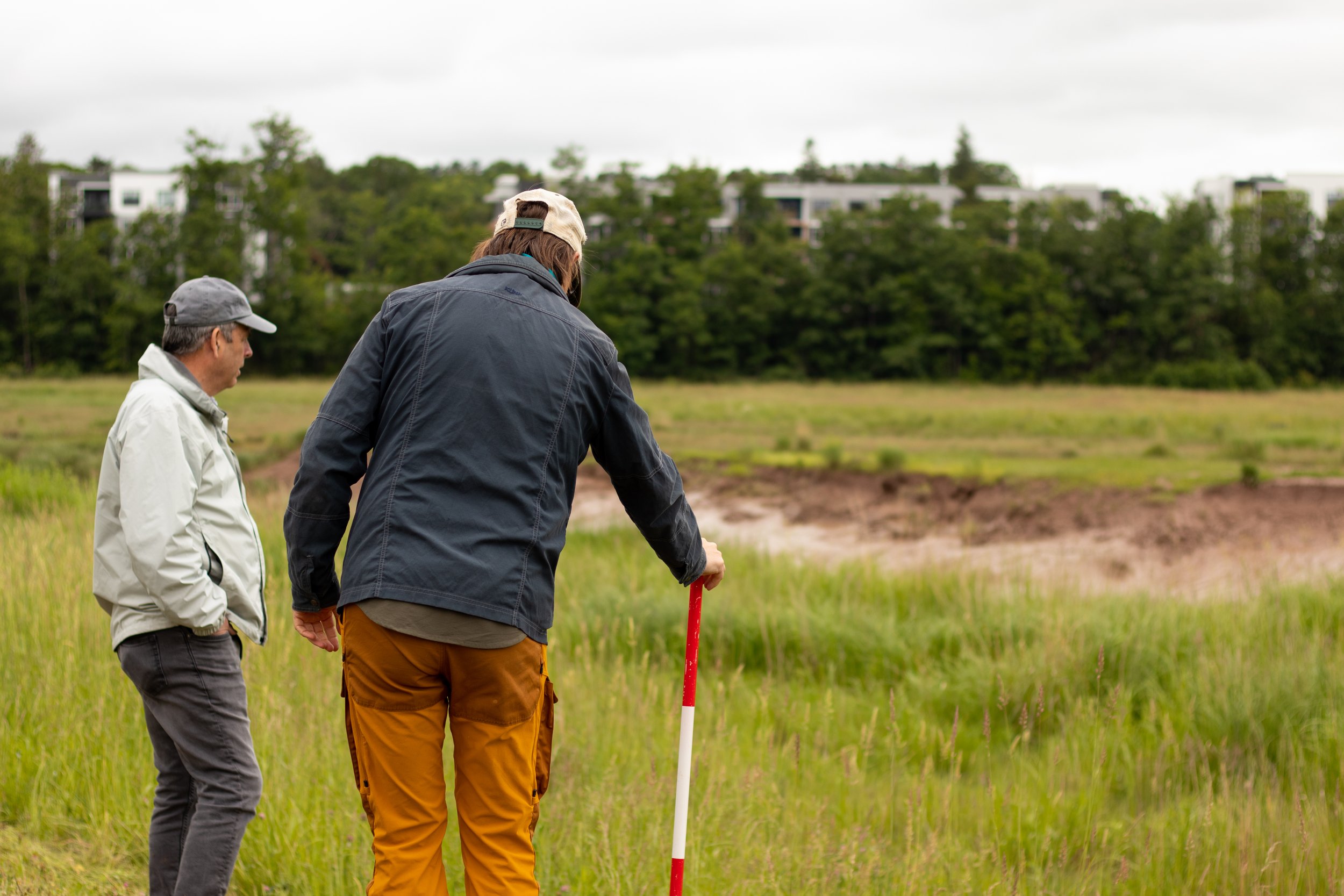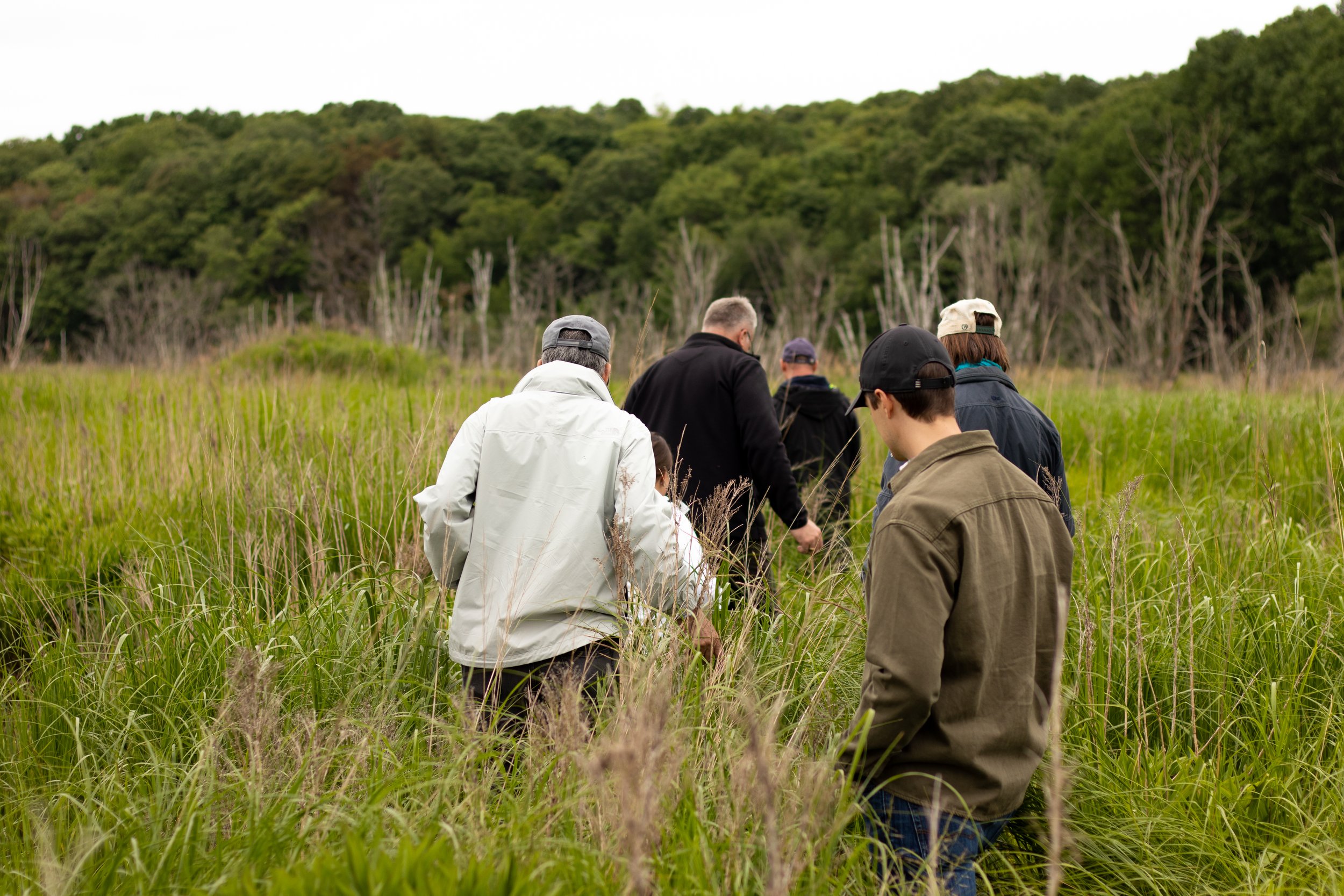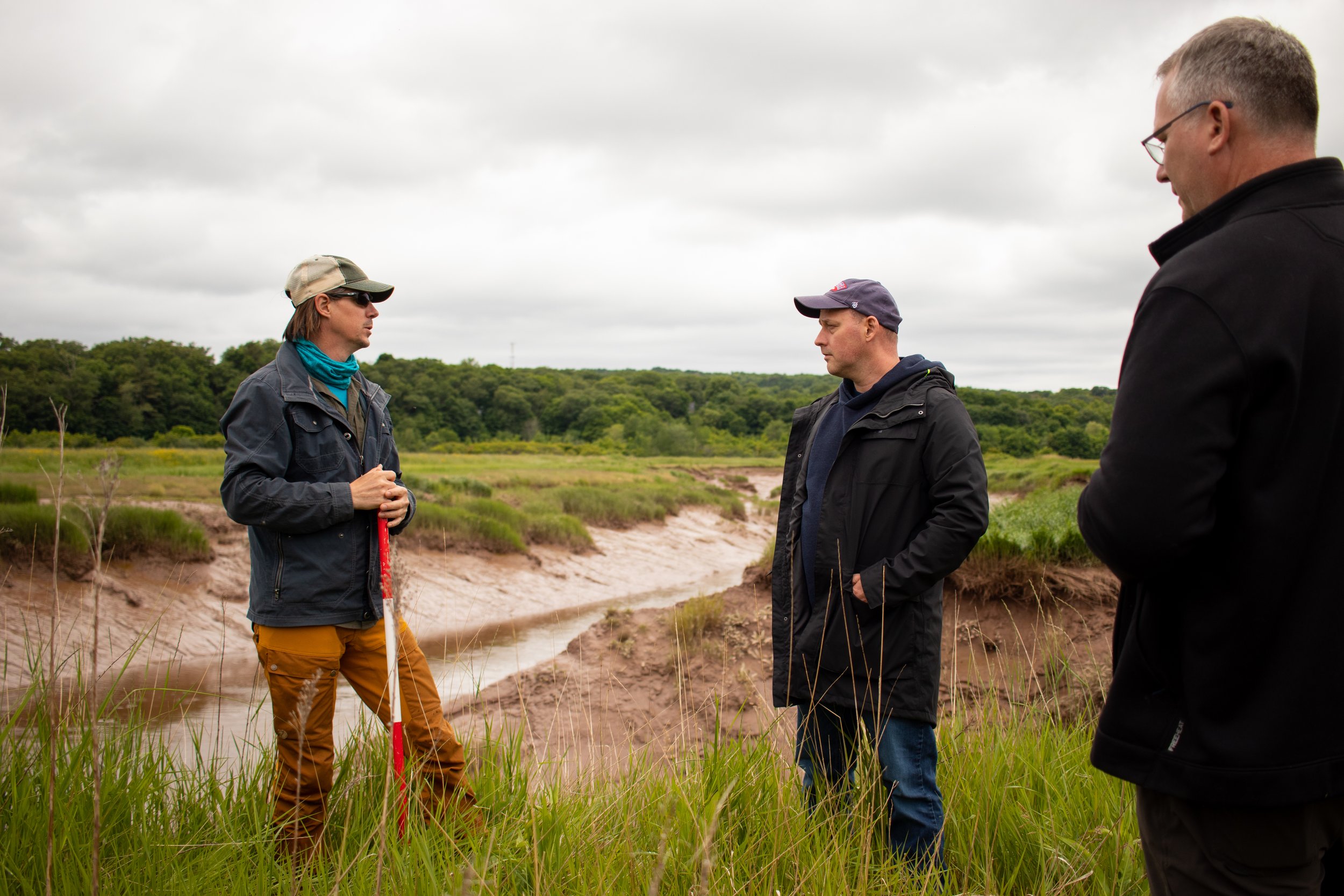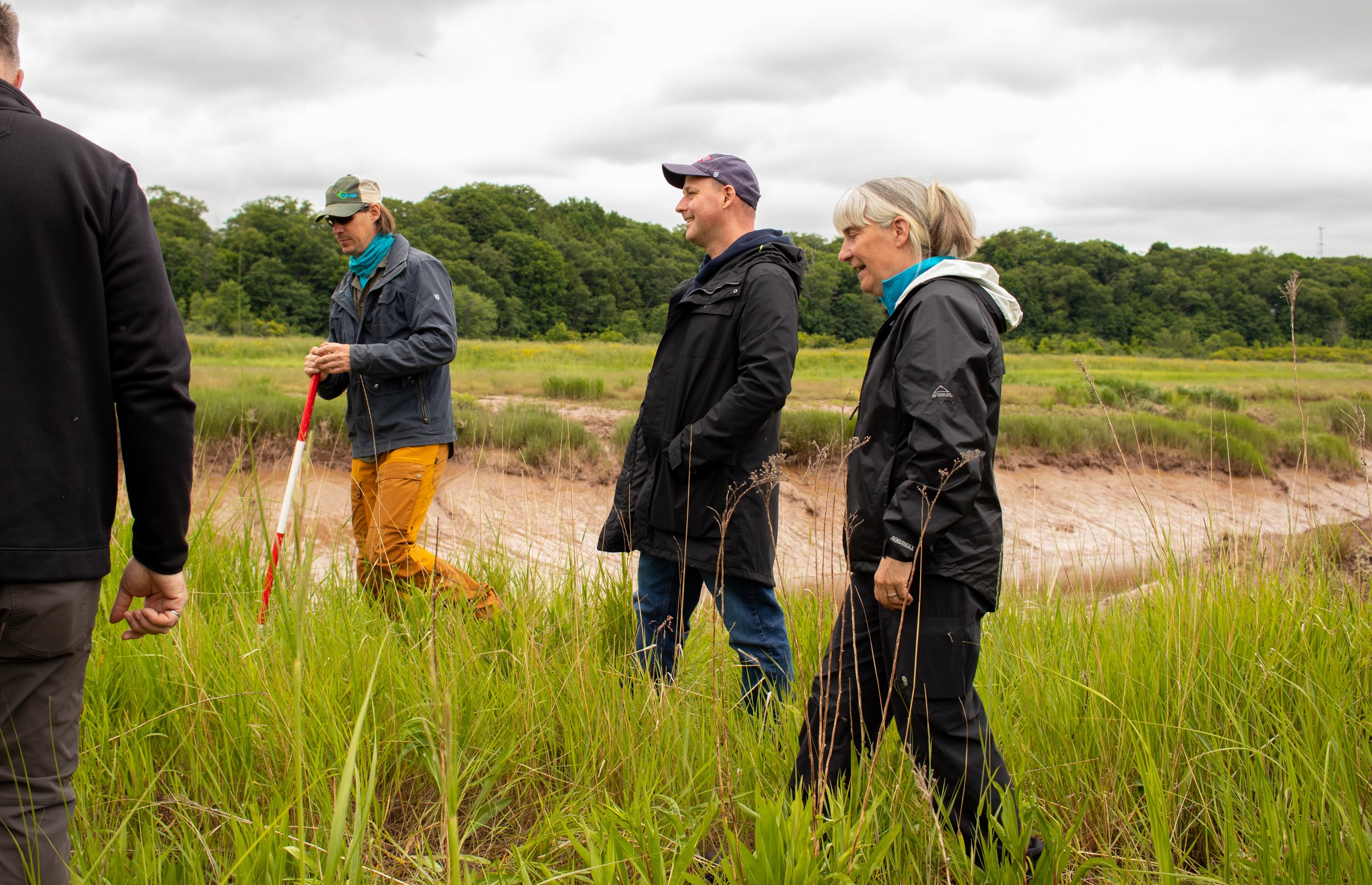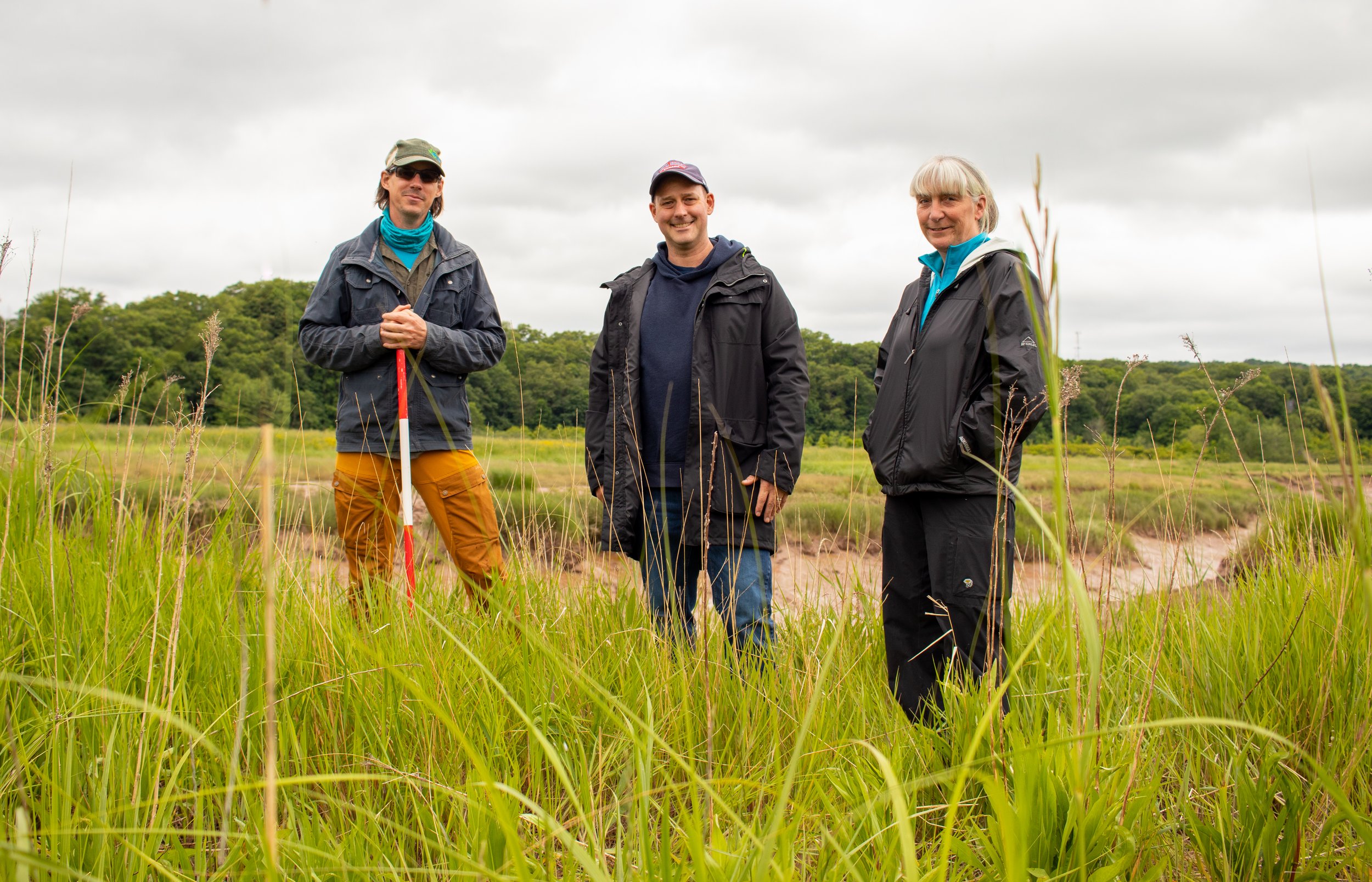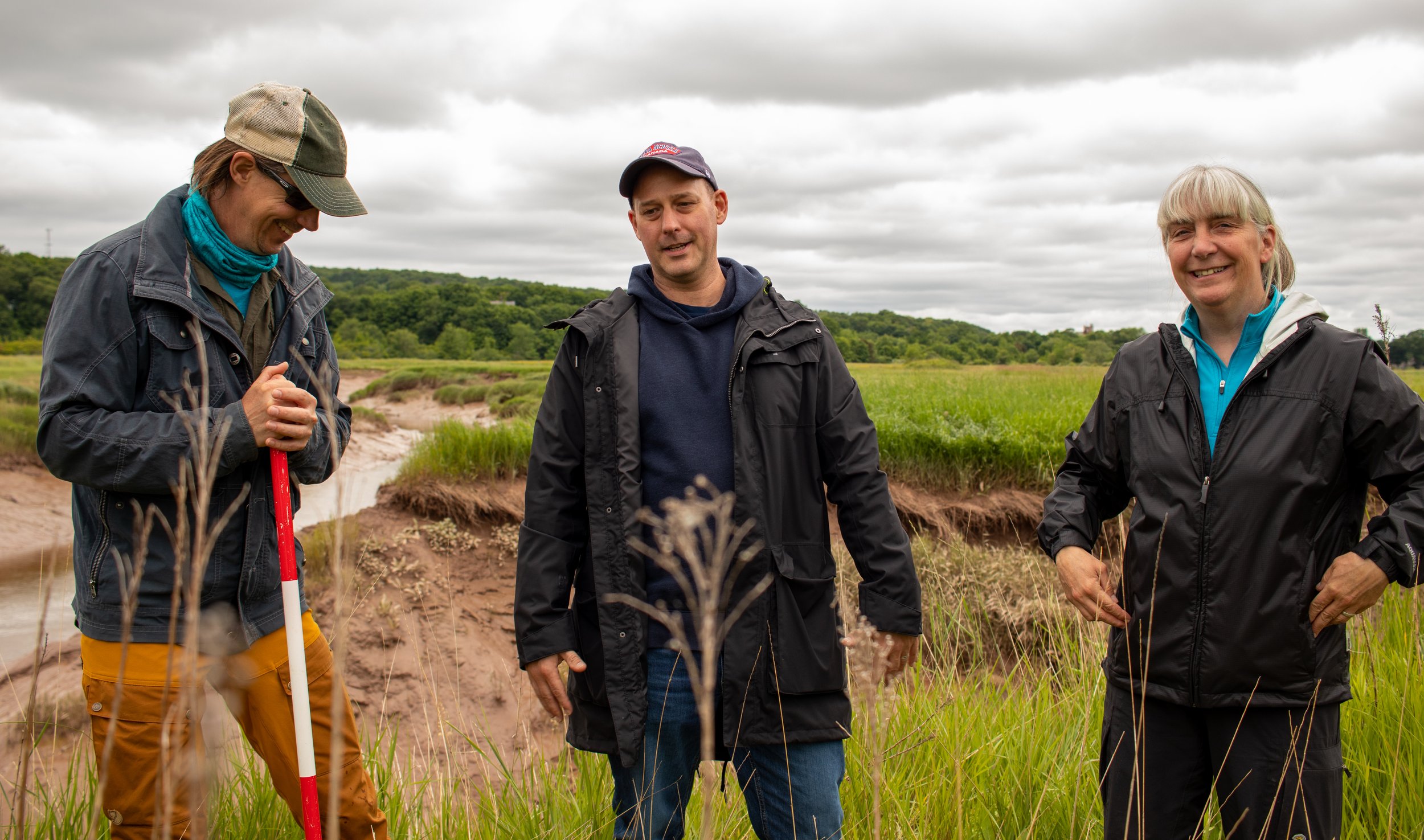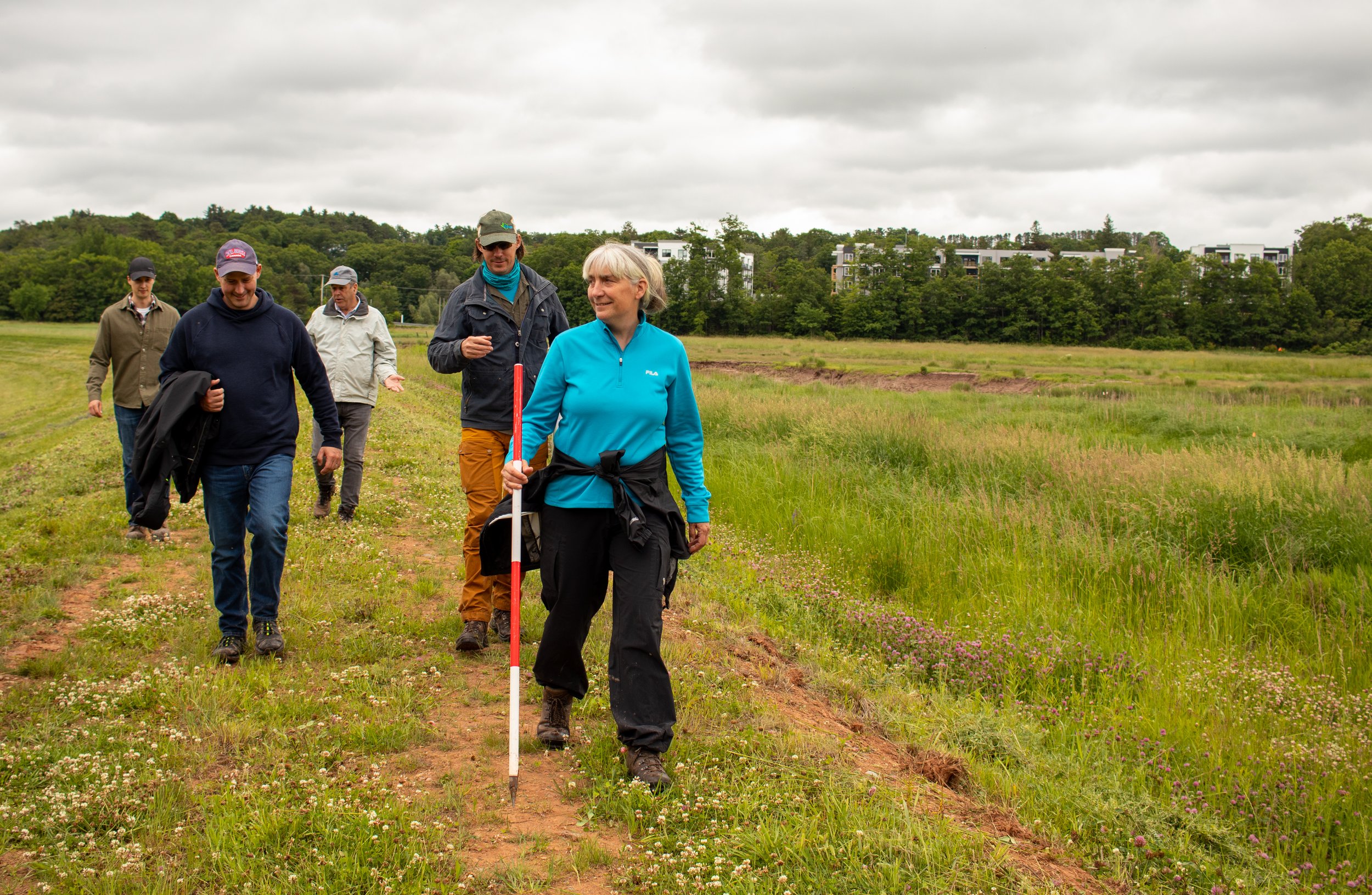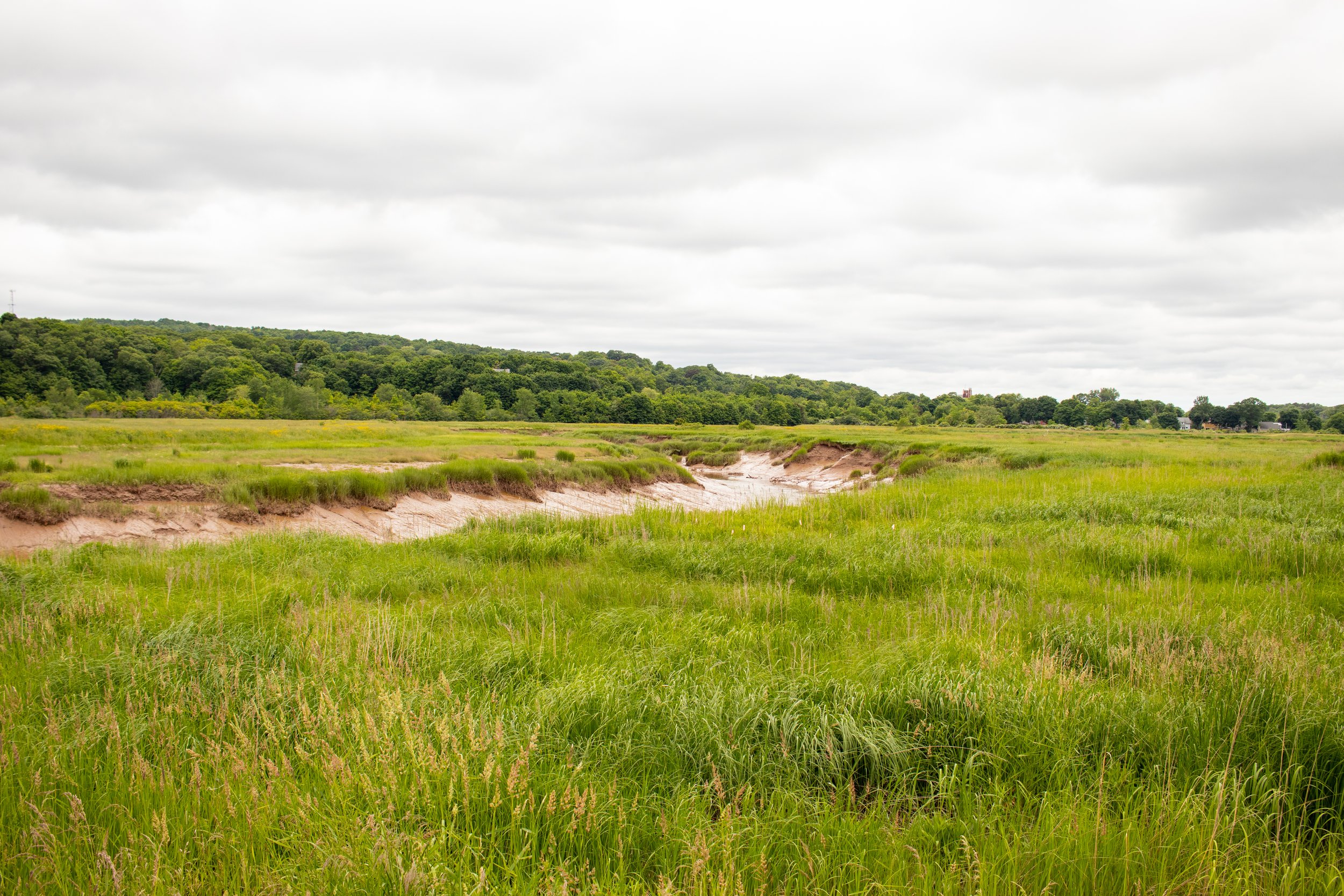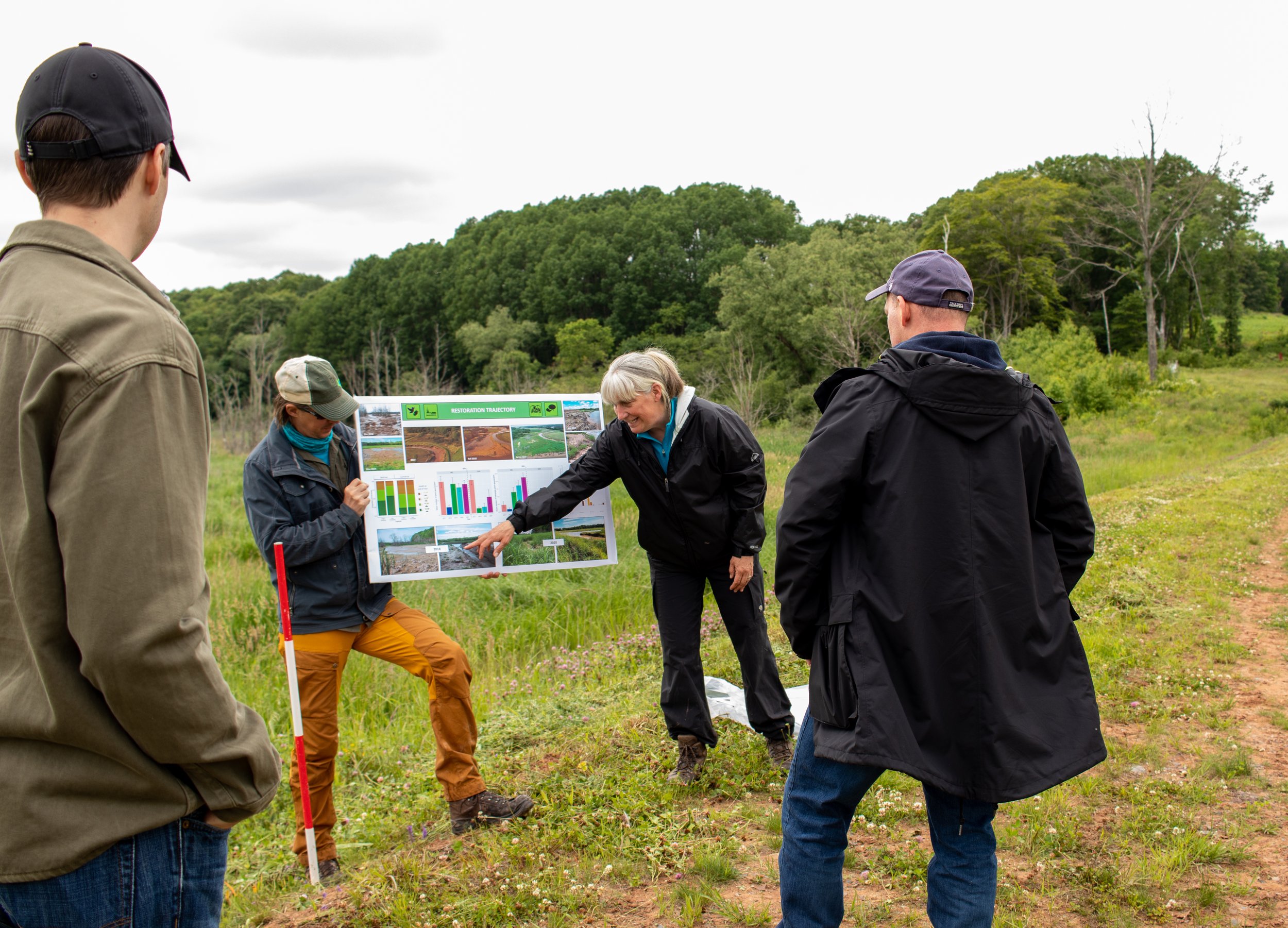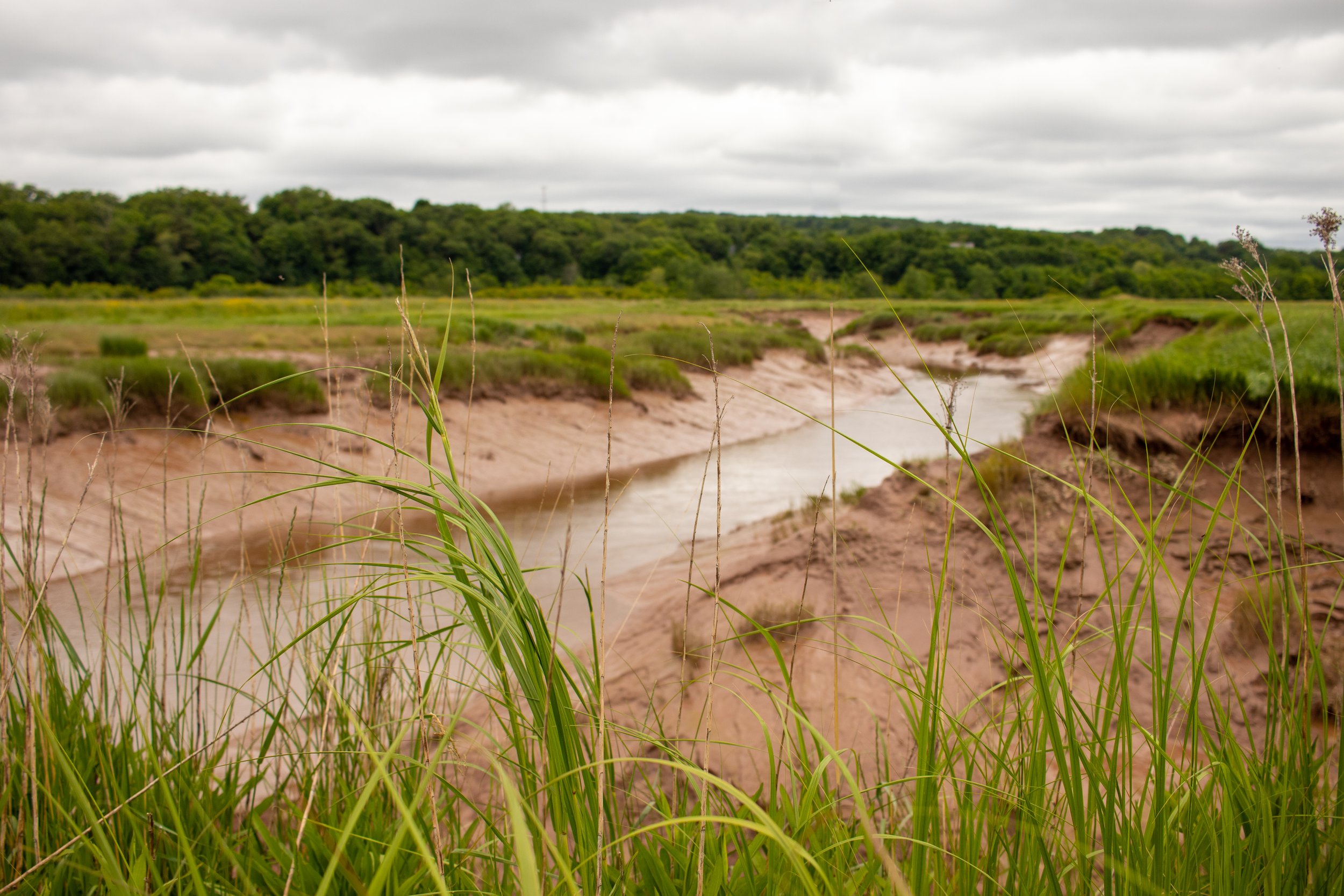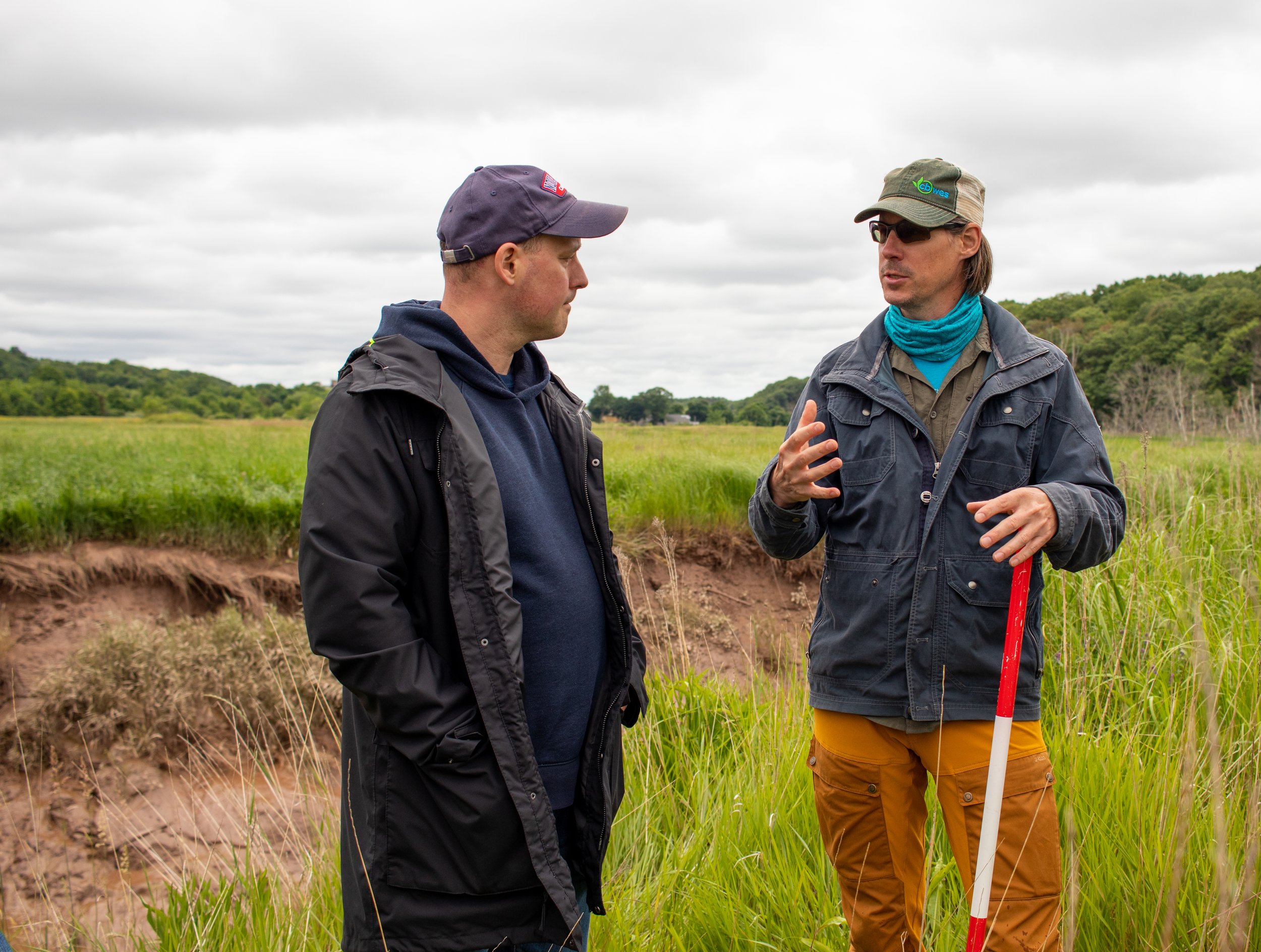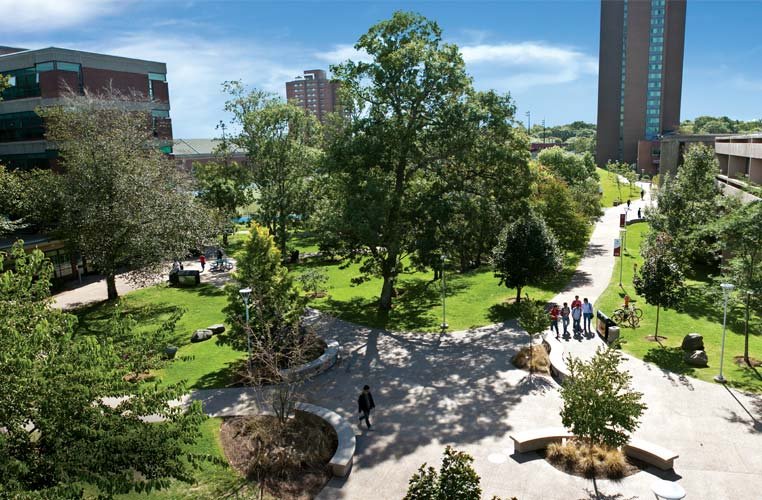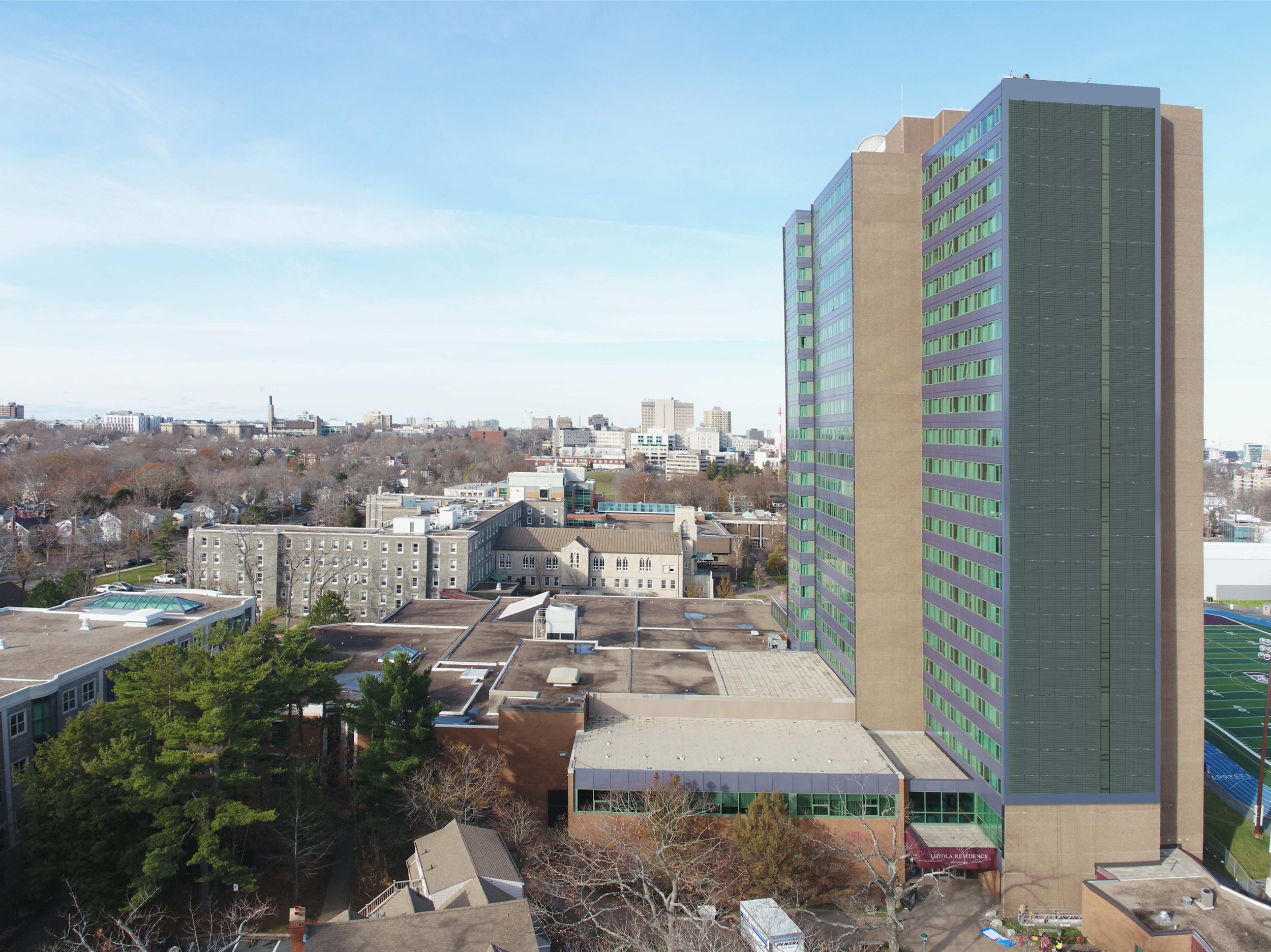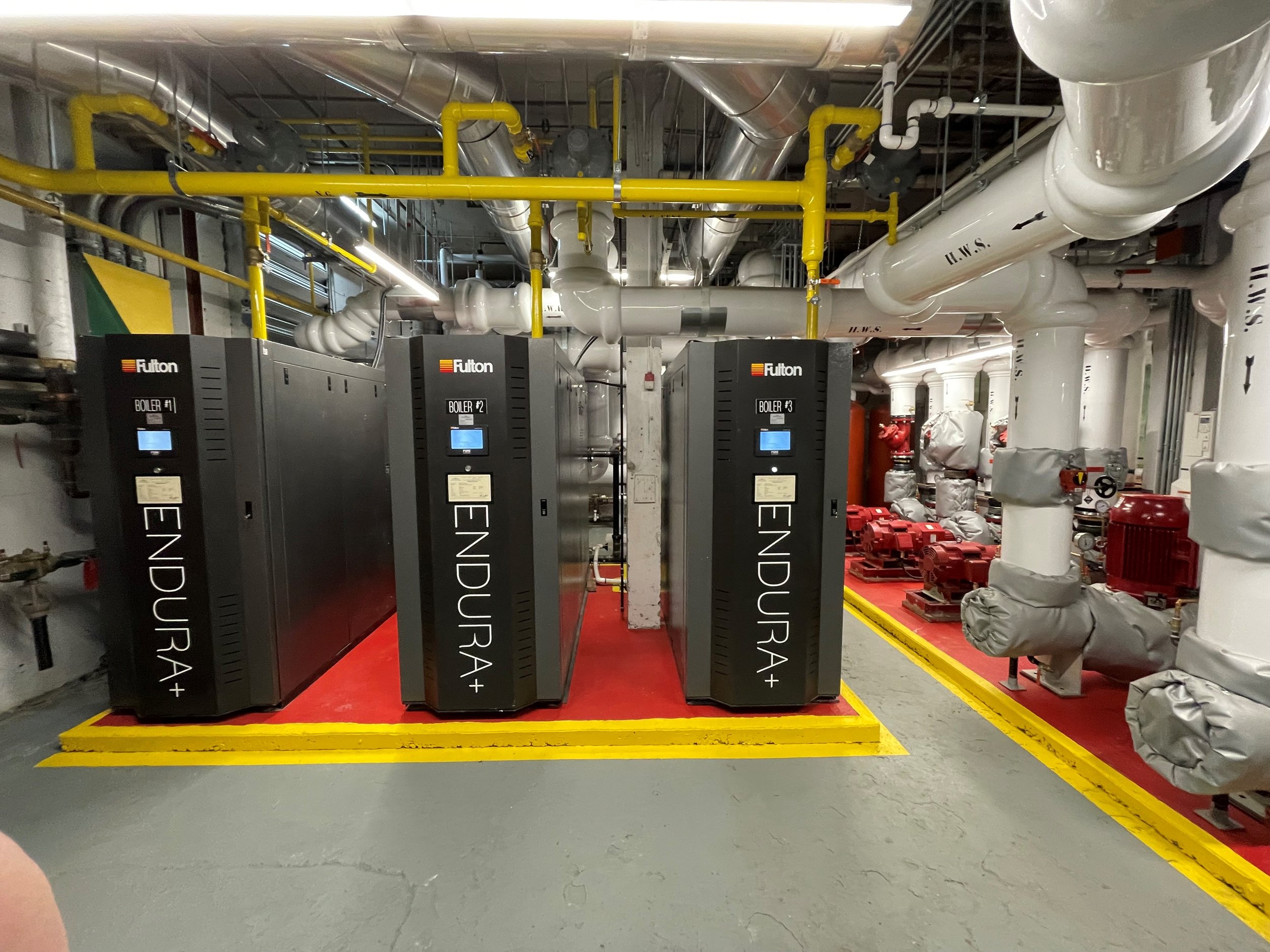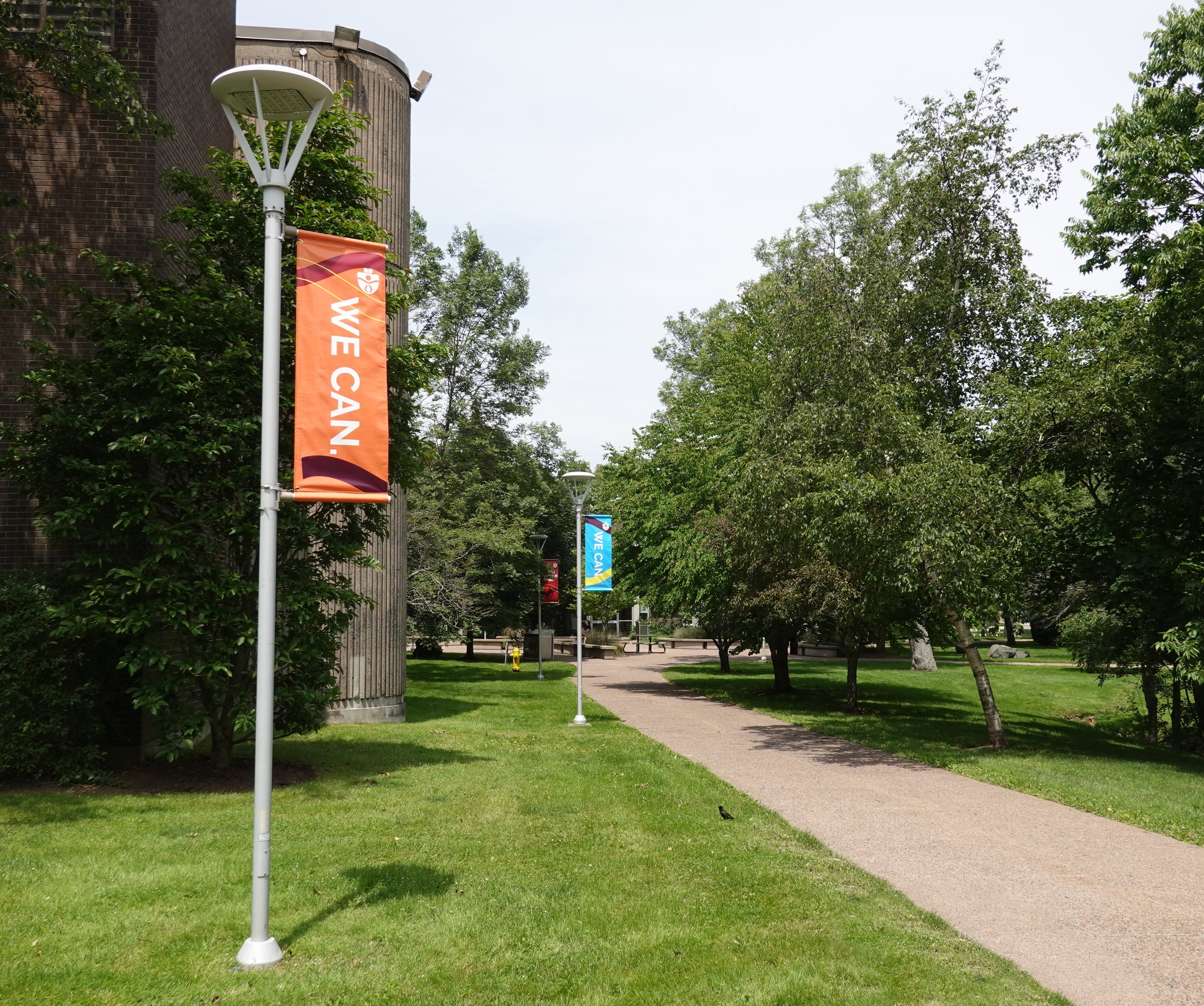L-R: Austin Castellanos (DSC), Josh Domingues (Flashfood), Virgile Ollivier (Livescale), Donny Ouyang (Blackcart), Dr. Ramesh Venkat (DSC)
Three Canadian retailers were recognized for sector leadership at the 2023 David Sobey Centre National Retail Innovation Awards.
“For a robust, competitive and successful Canadian retail sector, it's important for the industry to continue to innovate,” said David Sobey Centre (DSC) Director, Dr. Ramesh Venkat. “As a multidisciplinary research institute, we take pride in leading the way in supporting and championing innovation and new technologies to make further advancements in the sector.”
The winners used creative means to find solutions to advance technology, improve customer experiences and address sustainability.
Meet the winners
Retail Sustainability Innovation Award: Flashfood
Josh Domingues
Flashfood is an innovative waste reduction solution that has successfully diverted over 40 million pounds of food from landfills while continuing to provide affordable access to food for consumers through an easy-to-use app.
“This is great recognition for Flashfood, but we are nothing without our grocery partners who have given us an opportunity to make this incredible impact together.” - Josh Domingues BComm’13, Flashfood Founder.
Retail Technology Innovation Award: Livescale
Virgile Ollivier
Livescale is unique in the global market thanks to its integrated checkout, immersive client resources and outstanding customer service. It is changing how brands interact with communities by increasing customer engagement and sales.
“As a Canadian company, we were thrilled to receive the award as a recognition of our efforts in supporting Canadian retailers to adopt and succeed in social commerce. It rewards our mission as a company and motivates us to continue to achieve our vision for the retail space, and to continue empowering retailers, merchants and brands” – Virgile Ollivier, Livescale Founder.
Retail Customer Experience Innovation Award: Blackcart
Donny Ouyang
Blackcart is changing the future of e-commerce. Its innovative try-before-you-buy approach and proprietary fraud artificial intelligence provides a safe customer experience while increasing sales and merchants’ average order value.
"No one sets out on the chaotic ride of building a startup just for the sake of winning awards, so this recognition means the world to us. It's a fantastic reminder of all the hard work our team has invested in crafting impactful solutions for the retail industry." – Donny Ouyang, Blackcart Founder.
Keynote address
Tech entrepreneur and keynote speaker Lane Merrifield delivers his address to the crowd.
Tech entrepreneur and former “dragon” on CBC’s Dragons’ Den, Lane Merrifield, provided an impassioned keynote address to the crowded room of 200 people. Guests included members of the Sobey family and Sobeys Incorporated, retail business leaders, members of government, the local business community, students, faculty and staff.
His keynote address challenged people in the room to not be afraid to take risks in their professional and personal lives. “Courage is a muscle that needs to be exercised,” Mr. Merrifield shared with the crowd. “What do we do with complex challenges and fears? We have to break them down into small, manageable bites—action cures fear.”
Industry impact
President and CEO of the Retail Council of Canada Diane Briseboise and David Sobey Centre Director Dr. Ramesh Venkat stand for a photo.
Disruptive forces have dramatically shifted the global retail landscape. Consumers have been looking to retailers to provide solutions to address sustainability, product accessibility and affordability to improve technology and customer experience.
“By recognizing outstanding organizations for their unique contributions to retail, the David Sobey Centre continues to ensure that businesses can succeed, prosper and provide benchmarks for others to learn from and emulate,” said Diane Brisebois, David Sobey Advisory Council member and President & CEO of Retail Council of Canada. “The Retail Council of Canada is honoured and proud to support the Centre and these important awards.”
About the Awards
The awards were created in 2017 to recognize retailers and companies supporting the retail sector for their innovation and unique contributions to Canadian retailing each year. They specifically recognize the most innovative up-and-coming companies and change-makers in the retail industry.
About the David Sobey Centre for Innovation in Retailing & Services
The DSC is on the cusp of the most innovative, ground-breaking and cutting-edge changes in the retail industry. The Centre is the leading source of expertise in retailing and service management and prepares students to become industry leaders within Canada and globally. Every day the Centre is building a stronger and more vibrant national retail sector through research, innovation and education.
See photos from the National Retail Innovation Awards event on March 30, 2023
